Module 16: The Origins of Public Speaking
Ancient greece, the rise of democracy.

“Biblioteca” by queulat00. CC-BY .
In order to understand what contemporary public speaking is, we first must understand the genesis of public speaking. We begin with the Greeks and rhetoric. Rhetoric , as defined by Aristotle, is the “faculty of discovering in the particular case all the available means of persuasion.” [1] For the Greeks, rhetoric, or the art of public speaking, was first and foremost a means to persuade. Greek society relied on oral expression, which also included the ability to inform and give speeches of praise, known then as epideictic (to praise or blame someone) speeches. The ability to practice rhetoric in a public forum was a direct result of generations of change in the governing structures of Attica (a peninsula jutting into the Aegean Sea), with the city of Athens located at its center. The citizens of Athens were known as Athenians, and were among the most prosperous of people in the Mediterranean region.
Speech is the mirror of action. – Solon
It was in the Homeric Period, also known as “The Age of Homer,” between 850 B.C. and 650 B.C., that an evolution in forms of government from monarchy to oligarchy, and tyranny to eventual democracy, began in ancient Greece. Homer was the major figure of ancient Greek literature and the author of the earliest epic poems, the Iliad and the Odyssey. In the year 630 B.C., the last tyrant of Attica, Ceylon, seized the Acropolis, which was the seat of government in Athens, and established himself as the ruler of all Attica. He didn’t rule for long. Ceylon was overthrown within weeks by farmers and heavily armed foot soldiers known as hoplites. Many of Ceylon’s followers were killed, and the few that escaped death fled into the mountains. Thus, Athenian democracy was born.
In 621 B.C., the citizens of Athens commissioned Draco , who was an elder citizen considered to be the wisest of the Greeks, to sort their laws into an organized system known as codification, because until that time, they simply remained an oral form of custom and tradition and weren’t written like the laws of today. Draco was concerned only with criminal offenses, which until this time had been settled through blood feud (an eye-for-an-eye type of revenge between families) or rulings by the King. Draco established courts, complete with juries, to hear cases of homicide, assault, and robbery. By conforming the codes for criminal offenses into standards of practice, Draco began the tradition of law, where cases were decided on clearly enunciated crimes and penalties determined by statute rather than by the whims of the nobility. His laws helped constitute a surge in Athenian democracy.
In 593 B.C. Draco’s laws were reformed by Solon, an Athenian legislator, who introduced the first form of popular democracy into Athens. Solon’s courts became the model for the Romans and centuries later for England and America. Murphy and Katula argued: “It is with Solon’s reforms that we mark the unalterable impulse toward popular government in western civilization.” [2] The Athenian period of democratization included legislative as well as judicial reform.
It was during the reign of Pericles , from 461 B.C. to 429 B.C., that Athens achieved its greatest glory. Some of these accomplishments included the installation of a pure democracy to maintain, a liberalized judicial system to include poor citizens so that they could serve on juries, and the establishment of a popular legislative assembly to review annually all laws. In addition, he established the right for any Athenian citizen to propose or oppose a law during assembly. Pericles’ achievements far exceeded those mentioned. Because of his efforts, Athens became the crossroads of the world—the center of western civilization—and with it came the need for public speaking.

“Discurso Funebre Pericles” by Philipp Foltz. Public domain.
“Persuasion is the civilized substitute for harsh authority and ruthless force,” wrote R.T. Oliver. [3] Oliver said that the recipients of any persuasive discourse must feel free to make a choice. In a free society it is persuasion that decides rules, determines behavior,and acts as the governing agent in human physical and mental activities. In every free society individuals are continuously attempting to change the thoughts and/or actions of others. It is a fundamental concept of a free society. Ian Harvey suggested that the technique of persuasion is the technique of persuading free people to a pattern of life; and persuasion is the only possible means of combining freedom and order. [4] That combination successfully achieved is the solution to the overriding problems of our time. Rhetoric (persuasion), public speaking and democracy are inextricable. As long as there is rhetoric, and public speaking to deliver that message, there will exist democracy; and as long as there is democracy, there will exist rhetoric and public speaking.
I believe that the will of the people is resolved by a strong leadership. Even in a democratic society, events depend on a strong leadership with a strong power of persuasion, and not on the opinion of the masses. – Yitzhak Shamir

The Nature of Rhetoric

“Socrates” by Coyau. Coyau / Wikimedia Commons / CC-BY-SA-3.0 .
Pericles’ democracy established the need for training in public speaking. Greek assemblies debated old and new laws on a yearly basis. The courtrooms that Solon reformed now bristled with litigation. Pericles’ juries numbered between 500 and 2,000 people, so speaking at a public trial was similar to speaking at a public meeting. And to speak at a legislative assembly required serious, highly developed, and refined debate, because at stake generally were issues of peace and war. Murphy and Katula stated that the Athenian citizens realized that their very future often depended on their ability to speak persuasively. [5] Public speaking was an Olympic event where the winner received an olive wreath and was paraded through his town like a hero. Thus, Athens became a city of words, a city dominated by the orator. Athens witnessed the birth of what we know today as rhetoric .
To say that rhetoric played an important role in Greek and Roman life would be an understatement. The significance of rhetoric and oratory was evident in Greek and Roman education. George Kennedy [6] noted that rhetoric played the central role in ancient education. At about the age of fourteen, (only) boys were sent to the school of the rhetorician for theoretical instruction in public speaking, which was an important part of the teaching of the sophists. Public speaking was basic to the educational system of Isocrates (the most famous of the sophists); and it was even taught by Aristotle.” [7]
Dialectics and Logic
It is important to note that rhetoric and oratory are not the same, although we use rhetoric and oratory synonymously; nor are rhetoric and dialectic the same. Zeno of Elea (5th century B.C.), a Greek mathematician and philosopher of the Eleatic school, is considered to be the inventor of dialectical reasoning. However, it is Plato, another Greek philosopher and teacher of Aristotle, and not Socrates, that we attribute the popularity of dialectical reasoning. Dialectic can be defined as a debate intended to resolve a conflict between two contradictory (or polar opposites), or apparently contradictory ideas or elements logically, establishing truths on both sides rather than disproving one argument. Both rhetoric and dialectic are forms of critical analysis.
Among the most significant thinkers of the fifth century B.C. were the traveling lecturers known as sophists . They were primarily teachers of political excellence who dealt with practical and immediate issues of the day, and whose investigations led in many instances to a philosophical relativism . Unlike Socrates and Plato, the sophists believed that absolute truth was unknowable and perhaps nonexistent, especially in the sphere of forensics and political life, where no universal principles could be accepted. Courses of action had to be presented in persuasive fashion. Unlike the sophists, Socrates taught that truth was absolute and knowable and that a clear distinction should be made between dialectic, the question and answer method of obtaining the one correct answer, and rhetoric, which does not seem interested in the universal validity of the answer but only in its persuasiveness for the moment. Plato developed this criticism of rhetoric to such an extent that he is the most famous and most thorough-going of the enemies of rhetoric. Plato preferred the philosophical method of formal inquiry known as dialectic .
In making a speech one must study three points: first, the means of producing persuasion; second, the language; third, the proper arrangement of the various parts of the speech. – Aristotle
The Rhetorical Approach

“The School of Athens” by Raphael. Public domain.
Aristotle wrote that rhetoric is the faculty of discovering in the particular case all the available means of persuasion. He cited four uses of rhetoric: (1) by it truth and justice maintain their natural superiority; (2) it is suited to popular audiences, since they cannot follow scientific demonstration; (3) it teaches us to see both sides of an issue, and to refute unfair arguments; and (4) it is a means of self-defense. For Aristotle, rhetoric is the process of developing a persuasive argument, and oratory is the process of delivering that argument. He stated that the “authors of ‘Arts of Speaking’ have built up but a small portion of the art of rhetoric; because this art consists of proofs alone—all else is but accessory. Yet these writers say nothing of enthymemes, the very body and substance of persuasion.” [8]
Aristotle said that rhetoric has no special subject-matter; that is, it isn’t limited to particular topics and nothing else. He claimed that certain forms of persuasion come from outside and do not belong to the art itself. This refers to, for example, witnesses, forced confessions, and contracts that Aristotle said are external to the art of speaking. He considered these to be non-artistic proofs. Aristotle identified what he considered to be artistic proofs which must be supplied by the speaker’s invention (the “faculty of discovering” that Aristotle used in his definition of rhetoric); and these artistic means of persuasion are threefold. They consist in (1) evincing through the speech a personal character that will win the confidence of the listener; (2) engaging the listener’s emotions; and (3) proving a truth, real or apparent, by argument. Aristotle concluded that the mastery of the art, then, called for (1) the power of logical reasoning (logos); a knowledge of character (ethos); and a knowledge of the emotions (pathos).
In summary, Plato had opposed rhetoric to dialectic; Aristotle compared the two: both have to do with things which are within the field of knowledge of all men and are not part of any specialized science. They do not differ in nature, but in subject and form: dialectic is primarily philosophical, rhetoric political; dialectic consists of question and answer, rhetoric of a set speech. Both can be reduced to a system and thus are properly called “art.”
Rhetoric is the art of ruling the minds of men. – Plato
Aristotle became the primary source of all later rhetorical theory. Eventually, the dispute between rhetoric and philosophy in the time of Aristotle had ended in a compromise in which philosophy accepted rhetoric as a means to a goal. The rhetoric of not only Cicero and Quintilian, but of the Middle Ages, of the Renaissance, and of modern times, is basically Aristotelian.
- Kennedy, G. (1963). The Art of Persuasion in Greece . Princeton: University Press. p. 19 ↵
- Murphy James J. and Katula, R.A. (1995). A Synoptic History of Classical Rhetoric . 2nd ed. Davis: Ca. Hermagoras Press. ↵
- Oliver, R.T. (1950). Persuasive Speaking . New York: Longmans, Green and Co. p.1 ↵
- Harvey, I. (1951). The Technique of Persuasion. London: The Falcon Press. ↵
- Murphy and Katula 1995 ↵
- Kennedy, G. (1963). The Art of Persuasion in Greece . Princeton: University Press. ↵
- Kennedy 1963, p. 7 ↵
- (Book 1, p. 1) ↵
- Chapter 2 Ancient Greece. Authored by : Peter A. DeCaro, Ph.D.. Provided by : University of Alaska, Fairbanks, AK. Located at : http://publicspeakingproject.org/psvirtualtext.html . Project : The Public Speaking Project. License : CC BY-NC-ND: Attribution-NonCommercial-NoDerivatives
- 475_efeso_biblioteca_celso. Authored by : queulat00. Located at : https://flic.kr/p/axRstZ . License : CC BY: Attribution
- Parc de Versailles, Rond-Point des Philosophes, Isocrate, Pierre Granier MR1870 04. Authored by : Coyau. Located at : http://commons.wikimedia.org/wiki/File:Parc_de_Versailles,_Rond-Point_des_Philosophes,_Isocrate,_Pierre_Granier_MR1870_04.jpg . License : CC BY-SA: Attribution-ShareAlike
- Discurso funebre pericles. Authored by : Philipp Foltz. Located at : http://commons.wikimedia.org/wiki/File:Discurso_funebre_pericles.PNG . License : Public Domain: No Known Copyright
- Sanzio 01 Plato Aristotle. Authored by : Raphael. Provided by : Web Gallery of Art. Located at : http://commons.wikimedia.org/wiki/File:Sanzio_01_Plato_Aristotle.jpg . License : Public Domain: No Known Copyright

Privacy Policy

Learn How to Speak Basic Greek
Overview of the parts of speech in the greek language.
Written by Greek Boston in Learn How to Speak Basic Greek Comments Off on Overview of the Parts of Speech in the Greek Language

According to Webster’s Dictionary, a noun is:
any member of a class of words that typically can be combined with determiners to serve as the subject of a verb, can be interpreted as singular or plural, can be replaced with a pronoun, and refer to an entity, quality, state, action, or concept
Nouns are an important part of any Greek sentence. They can change form depending on which case they are in the sentence (such as nominative or accusative). In the following examples, the nouns are boldfaced:
- Το σκυλί έφαγε ένα κόκκαλο . To skili efage ena kokkalo . The dog ate a bone .
- Η γάτα έπινε γάλα . – I gata pane gala . The cat drank milk .
- Το αυτοκίνητο έχει κόκκινα καθίσματα . To aftokinito ehee kokkina kathismata . The car has red seats.
According to Webster’s Dictionary , a pronoun is:
any of a small set of words in a language that are used as substitutes for nouns or noun phrases and whose referents are named or understood in the context
In the Greek language, these are the main pronouns:
- I – Εγώ – ego
- You – εσύ – esi
- He – αυτός – aftos
- She – αυτή – afti
- It – αυτό – afto
- We – εμείς – emees
- You – εσείς – esees
- They – αυτοί – afti
According to Webster’s Dictionary, an adjective is:
a word belonging to one of the major form classes in any of numerous languages and typically serving as a modifier of a noun to denote a quality of the thing named, to indicate its quantity or extent, or to specify a thing as distinct from something else
Adjectives are also very common in the Greek language. In the following examples, the adjectives are boldfaced:
- Το κόκκινο αυτοκίνητο έχει καινούργιες θέσεις. To kokkino aftokinito ehee kenooryies Το κόκκινο αυτοκίνητο έχει καινούργιες θέσεις. thesees. The red car has new seats.
- Το κορίτσι είναι μικρό . To koritsi eenai mikro. The girl is little .
- Η γλυκιά ζύμη έχει ένα υπέροχο σιρόπι. I glikia zimi ehee ena uperoho siropi. The sweet pastry has a delicious syrup.
Verbs are an important component of every sentence because it indicates an action done by the subject. In the sentence, “She runs” the subject is “she” and the verb is “runs”. Verbs work the same way in the Greek language. Here’s a more in depth definition from Webster’s Dictionary:
a word that characteristically is the grammatical center of a predicate and expresses an act, occurrence, or mode of being, that in various languages is inflected for agreement with the subject, for tense, for voice, for mood, or for aspect, and that typically has rather full descriptive meaning and characterizing quality but is sometimes nearly devoid of these especially when used as an auxiliary or linking verb
In the following examples, the verbs are boldfaced:
- Το κορίτσι περπατά πολύ γρήγορα. to koritsi perpata poli grigora. The girl walks very fast.
- Το βιβλίο είναι ασφαλές εδώ. To vivlio eenai asfales etho. The book is safe here.
- Αγόρασα ένα νέο φόρεμα. Agorasa ena Neo forema. I bought a new dress.
According to Webster’s Dictionary, an adverb is:
a word belonging to one of the major form classes in any of numerous languages, typically serving as a modifier of a verb, an adjective, another adverb, a preposition, a phrase, a clause, or a sentence, expressing some relation of manner or quality, place, time, degree, number, cause, opposition, affirmation, or denial, and in English also serving to connect and to express comment on clause content
Adverbs work the same way in Greek as they do in the English language. In the following examples, the adverbs are boldfaced:
- Το παγωτό ήταν εξαιρετικά κρύο. To pagoto itan exepetika kruo. The ice cream was extremely cold.
- Το βιβλίο είναι αρκετά συναρπαστικό. To vivlio einai arketa sunarpastiko. The book is quite fascinating.
- Περπατά πολύ γρήγορα. Perpata poli grygora. She walks very fast.
Prepositions
According to Webster’s Dictionary , prepositions are:
a function word that typically combines with a noun phrase to form a phrase which usually expresses a modification or predication
They also work in much the same way in English as they do in Greek. In the following examples, the prepositions are boldfaced:
- Το βιβλίο είναι πάνω στο τραπέζι. To vivlio eenai pano sto trapezi. The book is on the table.
- Η γάτα είναι κάτω από την καρέκλα. I gata eenai kato apo tin karekla. The cat is under the chair.
- Το αγόρι είναι με τη μητέρα. To agori eenai me ti mitera. The boy is with the mother.
As with learning anything in Greek, it is important to familiarize yourself with these concepts. With repeat exposure through practice, they will become more ingrained.
The Learn Greek section on GreekBoston.com was written by Greeks to help people understand the conversational basics of the Greek language. This article is not a substitute for a professional Greek learning program, but a helpful resource for people wanting to learn simple communication in Greek.
Categorized in: Learn How to Speak Basic Greek
This post was written by Greek Boston
Share this Article:
Read Other Articles About How to Learn Basic Greek:

Greek Scenery Vocabulary Words

Ways to Learn Colloquial Greek
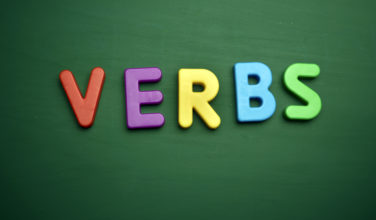
Conjugating the Verb to Have in Greek in the Present Tense
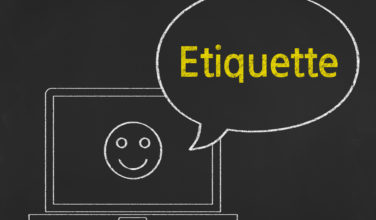
Learn How to Be Polite When Speaking Greek
Greek text to speech
Easily convert text to speech in Greek, and 90 more languages. Try our Greek text to speech free online. No registration required. Create Audio
Greek text to speech online voices make it easy to create audio guides, videos and language lessons in Greek. Turn a Word document to MP3 using Greek text to speech and download it instantly, or convert a Powerpoint presentation to a Greek voice video in minutes. Narakeet makes it easy to create Greek voiceover for your promotional materials, without having to hire Greek voice talent or record the audio yourself. Our text to speech Greek software does all the hard work.
Text to voice Greek generators provided by Narakeet are based on latest neural-network AI technologies. They create natural, life-like realistic online text to speech Greek voices.
Get started with text to speech Greek free – check out the instructions below:
Narakeet has 3 Greek text to speech male and female voices. Play the video below (with sound) for a quick demo.
Text to speech Greek voices
In addition to these voices, Narakeet has 700 text-to-speech voices in 90 languages .
For more options (uploading Word documents, voice speed/volume controls, working with Powerpoint files or Markdown scripts), check out our Tools .
Greek voice over
Text to speech Greek online voices are a great way to record audio materials and videos, much faster and more conveniently than hiring Greek voice talent. Here are some things you can make with Narakeet text reader Greek:
- Greek voice overs
- Greek TTS audio clips
- Text to speech Greek online blog versions
- Text to voice Greek social media stories
- Text to speech online Greek voice messages
- TTS Greek MP3 files
- Speech in greek from Word documents
Greek accent generator
In addition to Greek voice overs, you can use our text to speech Greek online voices to create English audio in Green accent, as if a person from Greece was reading the text. To do that, just select one of the Greek TTS voices, but type or upload English text.
Narakeet helps you create text to speech voiceovers , turn Powerpoint presentations and Markdown scripts into engaging videos. It is under active development, so things change frequently. Keep up to date: RSS , Slack , Twitter , YouTube , Facebook , Instagram , TikTok
Koine-Greek
Parts-of-speech & morphosyntax, part i: parts-of-speech and morphosyntax, 1. verbal inflectional categories, 1.1 valance & valency alternating morphology, 1.1.1 transitivity and embodiment 1.1.2 prototypical transitive events 1.1.3 event energy source 1.1.4 event energy direction 1.1.5 notes on activa tantum and media tantum verbs, 1.2.1 perfective 1.2.2 imperfective 1.2.3 completive-resultative, 1.3.1 past 1.3.2 non-past 1.3.3 future, 1.4 mood/modality, 1.4.1 indicative: the unmarked/default mood 1.4.2 subjunctive: epistemic modality 1.4.3 optative: remote epistemic modality 1.4.4 imperative: deontic modality & illocutionary force 1.4.5 exhortatives: interlocutors & participant reference, 1.5 subject agreement, 1.5.1 person 1.5.2 number, 2. inflectional morphology of the verb, 3. auxiliary verbs, 3.1 types of auxiliaries 3.2 periphrasis 3.3 auxiliaries and participles, 4. verbal derivational morphology, 4.1 infinitive 4.2 participle 4.3 compounding & similar processes, 4.3.1 pre-verb attachment/directionals 4.3.2 compounding 4.3.3 noun incorporation, 5. nominal inflectional categories, 5.1.1 gender as noun class 5.1.2 masculine 5.1.3 feminine 5.1.4 neuter 5.1.5 gender in nouns 5.1.6 gender agreement & co-indexing, 5.2.1 singular 5.2.2 plural 5.2.3 dual*, 6. inflectional morphology of the noun, 7. inflectional morphology of the adjective, 7.1 adjective inflection classes and iconicity 7.2 formal relationships among adjective classes, 8. inflectional morphology of quantifiers, 9. other derivational morphology, 9.1 nominalization 9.2 modifier derivation, 10. referential & deictic system, 10.1 interlocutives, 10.1.1 personal pronouns 10.1.2 possessive pronouns 10.1.3 reflexive pronouns, 10.2 non-interlocutives, 10.2.1 definite, 10.2.1.1 substitutive, 10.2.1.1.1 personal 10.2.1.1.2 demonstrative, 10.2.1.2 non-substitutive, 10.2.2 non-definite, 10.2.2.1 indefinite 10.2.2.2 interrogative, 10.2.3 relative 10.2.4 correlative, 11. prepositions, 12. other lexical classes, 12.1 adverbs 12.2 negators 12.3 connectives 12.4 interjectives.
Begin typing your search above and press return to search. Press Esc to cancel.
- Already have a WordPress.com account? Log in now.
- Subscribe Subscribed
- Copy shortlink
- Report this content
- View post in Reader
- Manage subscriptions
- Collapse this bar
Free Speech in Ancient Greece
Learn about how the ancient Greeks viewed free speech.
Geography, Human Geography, Social Studies, World History
The ancient Greeks were pioneers of free speech. Their theater, literature, and educational institutions explored the human experience, freedom of expression, and questioning of authority.
Like contemporary societies, however, ancient Greece did not allow complete freedom of speech . Leaders, philosophers, artists, and everyday citizens wrestled with balancing individual freedom and public order.
Articles & Profiles
Instructional links, media credits.
The audio, illustrations, photos, and videos are credited beneath the media asset, except for promotional images, which generally link to another page that contains the media credit. The Rights Holder for media is the person or group credited.
Last Updated
October 19, 2023
User Permissions
For information on user permissions, please read our Terms of Service. If you have questions about how to cite anything on our website in your project or classroom presentation, please contact your teacher. They will best know the preferred format. When you reach out to them, you will need the page title, URL, and the date you accessed the resource.
If a media asset is downloadable, a download button appears in the corner of the media viewer. If no button appears, you cannot download or save the media.
Text on this page is printable and can be used according to our Terms of Service .
Interactives
Any interactives on this page can only be played while you are visiting our website. You cannot download interactives.
Related Resources
What is "Speech" in Greek and how to say it?
Learn the word in this minigame:, more media vocabulary in greek, example sentences, how to say "speech" in greek and in 45 more languages., other interesting topics in greek, ready to learn greek, language drops is a fun, visual language learning app. learn greek free today..
- Drops for Business
- Visual Dictionary (Word Drops)
- Recommended Resources
- Redeem Gift
- Join Our Translator Team
- Help and FAQ
Drops Courses
bottom_desktop desktop:[300x250]
– An Open Forum for Classics
Two Concepts of Free Speech, from Classical Athens to Today’s Campus
James Kierstead
As the Oxford political theorist Teresa Bejan reminded us a few years ago now in The Atlantic , the Greeks had two concepts of free speech . The first, isēgoriā (ἰσηγορία) could more literally be translated ‘equality of public speech’, whereas the second, parrhēsiā (παρρησία), is more directly focussed on the license to say whatever you want: the prefix comes from pās (πᾶς), ‘all’ or ‘everything’, so that parrhēsiā is,at root, the freedom to say anything.
Bejan argued that we risk misunderstanding today’s deplatformers and anti-free-speech campaigners unless we realize that they’re more concerned about isēgoriā than parrhēsiā. “What they care about,” writes Bejan, “is the equal right to speech, and equal access to a public forum in which the historically marginalized and excluded can be heard and count equally with the privileged.” Bejan thinks that a convincing defence of parrhēsiā on college campuses can and should be mounted, but only if we reconnect with the egalitarianism that she thinks undergirds both isēgoriā and parrhēsiā .
I’m basically in agreement with Bejan on this – that “the alternative” to defending expressive liberty “is to allow the powers-that-happen-to-be to grant that liberty as a license to some individuals while denying it to others.” But I also think there’s more that we can get out of the Classical Greeks’ two concepts of free speech, especially if we go back to the world they emerged from and examine the ways in which they were used and the spaces they were associated with. Once we do that, we should be in a position to develop a more nuanced conception of which types of speech norms should be encouraged or defended in different contexts. Isēgoriā , I will argue, does have its claims in certain spaces, and it does make sense to encourage it in the seminar room in particular. But it’s parrhēsiā that we will ultimately need to defend if we want to keep free speech alive, within the academy and in society as a whole.
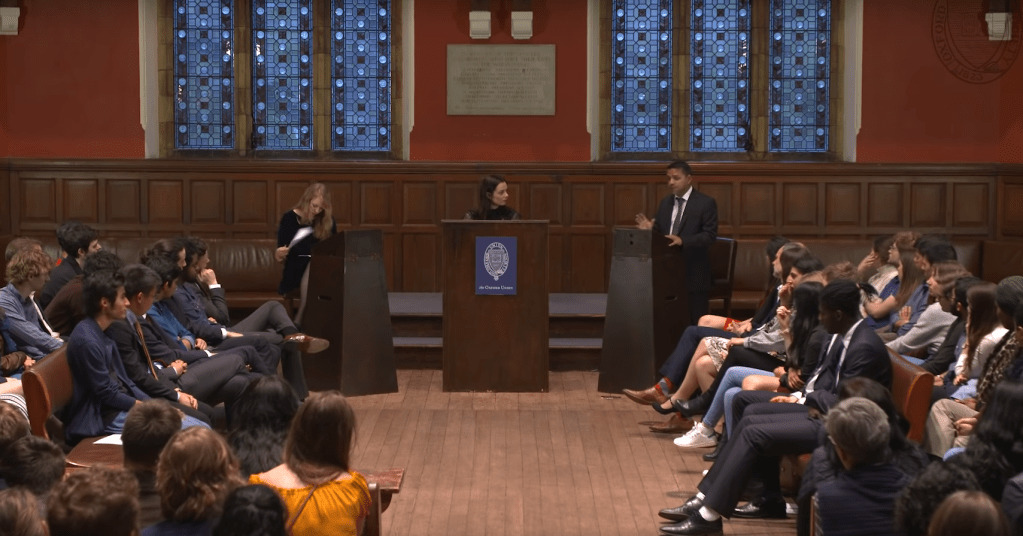
Even before Athens’ Classical democracy was up and running, parrhēsiā and isēgoriā had emerged from slightly different contexts. Parrhēsiā was particularly associated with a tradition of satirical poetry written in iambs and often aimed at tyrants , the sole rulers who came to power in a clutch of city-states across the Greek world in the 6 th century BC. Isēgoriā , by contrast, had long been associated with formal political bodies such as assemblies and councils, and with the ability of every man who qualified for them to have his say on the affairs of the polis (πόλις, city-state) on an equal basis with his peers.
These historical differences carried on into the Classical period, with the two values always being associated with slightly different spaces and institutions. According to his student Plato, Socrates expressed puzzlement about why the Athenians only listened to experts when it came to things like ship-building, but were willing to listen to any man – including poor and low-born men such as shoe-makers and carpenters – when it came to making decisions about the direction of the city-state. Demosthenes stresses that it’s in the Athenians’ own interest to listen to everyone who wants to offer advice, because that will mean they have a variety of proposals to choose from. Both of these passages show the importance that the ideal of equal public speech – isēgoriā – had in the Assembly, the most important decision-making body in democratic Athens.
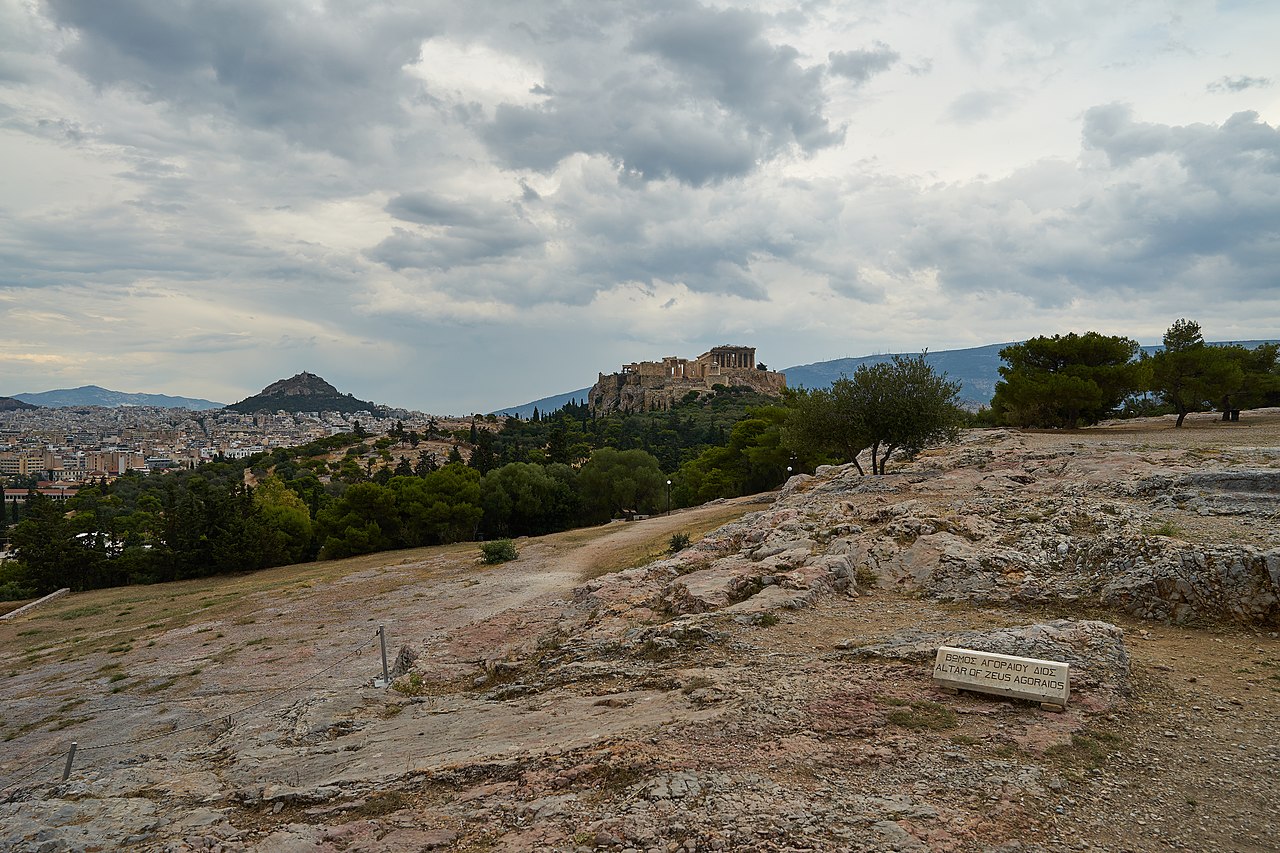
P arrhēsiā , for its part, was more likely to be found as part of ordinary social life: the philosopher and orator Isocrates, for instance, describes it as having an important part to play in education, since it allows the sort of honest feedback from acquaintances which can help a man improve himself. Unlike isēgoriā , parrhēsiā didn’t really flourish in the formal political institutions that ran the democratic city-state; but it did flourish in the theatre, especially the comic theatre.
That the comic theatre was a place where parrhēsiā thrived is something we hear from the ancient sources themselves. Isocrates complains (almost certainly inaccurately) that, even though Athens is a democracy, there is no parrhēsiā except “here in the assembly – for the most moronic and narcissistic people – and in the theatre for producers of comedy.” The legal speech-writer Lysias describes the defendant in one case as doing things that are too shameful to mention – “although you hear of them from the comic poets every year” ( Fragment 53 ). And in the ideal city of Plato’s Laws , comedy is regulated in order to keep kakēgoriā (‘bad public speech’) under control.

Nobody who’s seen or read the plays of Aristophanes will be surprised at this association between comedy and unhindered, sometimes even offensive, free speech. His eleven surviving plays – the only complete examples we have of the hard-hitting, no-holds-barred genre of ‘Old Comedy’ – are brimming with obscenities, both scatological and sexual. Actors wore an exaggerated paunch and an outsized phallus as part of their costumes, and acted out defecation and sexual acts on stage. Characters shifted from mock-tragic at one moment to broadly orgiastic the next, creating an effect that probably has its closest modern analogy in fast-moving, nothing-is-off-limits cartoons like South Park or Family Guy . And the plots can be similarly outlandish – a farmer who’s had enough of the Peloponnesian War drawing up his own private peace-treaty with Sparta ( Acharnians ); women bringing the war to an end through a coordinated sex-strike ( Lysistrata ); a man flying to the abode of the gods on a giant dung beetle ( Peace ).

Aristophanes’ plays were also bracingly political – here the modern analogy would be something like John Oliver’s or Bill Maher’s shows, though Aristophanes can be even more hard-hitting (and considerably more offensive). In a few passages where he seems to address his audience directly, Aristophanes appears to defend himself, claiming that what he was doing was helpful to the democracy he lived in. We don’t know exactly what the Athenians thought about that; but they didn’t seem to have any trouble with bawdy satire having a prominent place in their public culture. The Festival of Dionysus was, after all, a major civic and religious event, and a centrepiece of the Athenian festival calendar.
Why was this sort of unhindered free speech seen as salutary in democratic Athenian society? Perhaps because parrhēsiā , as a character in Euripides’ Suppliants implies , allowed the weaker members of society to have their say, permitting them to push back and hold their own against wealthier and more powerful citizens, if only every now and then. But parrhēsiā didn’t just help people lower down on the social hierarchy speak up against their supposed betters. It also allowed intellectuals to speak up against the reigning orthodoxies of the day. Socrates in Plato’s dialogue Gorgias , for example, encourages one of his interlocutors to speak frankly , adding that he is “clearly saying things now which others think, but don’t want to say out loud.” And Aristotle describes the “great-souled man” as “ a frank speaker ” ( parrhēsiastēs ), since “hiding things is characteristic of people who are afraid, and who care less for the truth than for opinion.”
These, then, were the Greeks’ two concepts of free speech, and what came to seem their natural habitats: isēgoriā , or equality of public speech, which was associated with formal political institutions and democratic deliberation; and parrhēsiā , the license to say anything, even (or especially) if it went against the current, which had its stronghold in the ribald comic theatre of playwrights like Aristophanes. Nobody would argue that the Athenians lived up to these ideals perfectly, and there are ongoing scholarly controversies about what the effective limits of free speech were in Athens – which was, we should bear in mind, a more traditional and religious society than our own. But my argument here isn’t that democratic Athens was a free-speech utopia that we should emulate in every respect. Rather, it’s that the Greeks’ two concepts of free speech can help us think about the contemporary debate about free speech in universities.

In some ways, this shouldn’t seem very radical, because isēgoriā , at least, is an ideal that would find a ready home in modern discourses about free speech, at least within the academy. One of the principles most often held up by recent theorists of liberal democracy is deliberation, in the somewhat technical sense of genuinely reasoned and open discussion. In one of the most well-known versions of this ideal, Jürgen Habermas’ “ideal speech situation,” the best sort of discussion is imagined as one in which everyone is able to propose or question any idea whatsoever, without feeling intimidated or coerced by anyone else. The idea that everyone should be equally able to have a say – isēgoriā , in other words – is obviously central.
And deliberative ideals of this sort are clearly something which have a place on college campuses, especially in classes and seminars. In these contexts we might well want to try to make sure everyone taking part in a discussion has a roughly equal chance to have a say. Most academic seminars, in any case, run on a series of implicit norms that the vast majority of participants are happy to go along with. These include waiting your turn to speak; not engaging in ad hominem attacks; and trying to express criticisms politely.
These kind of seminar norms aren’t a bad thing at all. Indeed, they clearly embody isēgoriā and related deliberative values in their concern for equality and for reasoned discourse. But these values can’t be the only ones informing the way we have conversations on campuses; still less can they be the only norms we have for speech outside of universities (not least because, though we academics are sometimes liable to forget it, not every conversation is a seminar). We also need to honour the unrestricted license to express ourselves, even in a way which rubs some people up the wrong way – which the Greeks called parrhēsiā. And, in fact, it’s parrhēsiā that has to be our bedrock free speech value, both on campus and off, if we’re going to preserve everyone’s right to have their say.
Why? Because even though sometimes everyone will be in agreement that something someone said was disrespectful, that won’t always be the case. People often disagree about whether something was impolite or not; and it can be easy to perceive or present something someone has said as disrespectful even when what has really bothered you isn’t the way they’ve expressed themselves but the content of what they’ve said. In other words, claims about respect, politeness, and so on, are easily weaponized against legitimate expression; and they’re especially easily weaponized in environments like contemporary universities, where an enormous political imbalance of academic and administrative staff effectively gives one side free rein to decide what counts as offensive and what doesn’t.

I sēgoriā and its modern descendants provide us with some excellent ideals to aspire to, but, short of a few minimal and practical measures such as banning direct personal abuse, it’ll never be possible to do away completely with complaints about people being disrespectful and impolite. These kinds of claims emerge virtually inevitably from conflict, and conflict is itself an inevitable feature of doing things together with other humans, who have an irritating tendency to look at the world in different ways – and to want to express these different perspectives.
We might still want to encourage the narrower set of values associated with isēgoriā in our classes and seminars. Personally, I believe we should. But the ease with which claims about disrespect can be employed to shut others up means that they shouldn’t form the basis of disciplinary procedures; instead, we should have formal rules that defend a much more generous notion of free expression.
In a previous attempt to formulate this idea, I suggested that universities should look to encourage civility as a soft norm , but also protect free speech via hard rules (for example, against scholars being sacked for ordinary political expression). Teresa Bejan is right that both of the Ancient Greek ideals we have looked at here are, at bottom, bound up with a commitment towards free and equal speech. Not all concepts of free speech are created equal, though, and the Greeks’ two concepts of free speech are different in significant ways. Ultimately, it’s the broader, more general claims of unrestricted free speech that we will have to defend if we want to have a hope of halting the gradual erosion of our expressive freedoms in our universities and beyond.

James Kierstead is Senior Lecturer in Classics at Victoria University of Wellington and the moderator of Heterodox Classics, a Heterodox Academy community.
Further Reading
E.R. Dodds’s Sather Lectures, published as The Greeks and The Irrational (Berkeley, CA, 1951) were influential in a number of ways; most relevant here is Dodds’s claim that the Classical Athenians turned against their intellectuals under the pressures of plague and war. K.J. Dover, “The freedom of the intellectual in Greek society,” Talanta 7 (1975) 24–54 (accessible here ) surveyed the evidence for the persecution of intellectuals in Athens and concluded that much of it was late and unreliable. More recently, J. Filonik, “Athenian Impiety Trials: a Reappraisal,” Dike 16 (2013) 11–96 (accessible here ) similarly concludes that trials like that of Socrates were more the exception than the rule – which doesn’t mean, of course, that they never happened.
Jürgen Habermas’ influential theories of liberalism and democracy are dispersed throughout a large and forbiddingly difficult body of writing. For his ideas on the public sphere, start with The Structural Transformation of the Public Sphere , trans. T. Burger and F. Lawrence (MIT Press, Cambridge, MA, 1989) [German original, 1962]. For his “ideal speech situation” ( Ideale Sprechsituation ) see especially “Discourse Ethics: Notes on a Program of Philosophical Justification,” in Moral Consciousness and Communicative Action, trans. C. Lenhardt and S. Weber Nicholsen (MIT Press, Cambridge, MA, 1990) [German original, 1973].
Share this article via:
One thought on “ two concepts of free speech, from classical athens to today’s campus ”.
- Pingback: Two Concepts of Free Speech, From Classical Athens to Today’s Campus
Comments are closed.
- Ancient Religion
- Competitions
- Greek Language
- Greek Literature
- Latin Language
- Latin Literature
- Material Culture
- The Classical Tradition
- The Future of Classics
- The New Naso
- Uncategorized
The Two Clashing Meanings of 'Free Speech'
Today’s campus controversies reflect a battle between two distinct conceptions of the term—what the Greeks called isegoria and parrhesia.

Little distinguishes democracy in America more sharply from Europe than the primacy—and permissiveness—of our commitment to free speech. Yet ongoing controversies at American universities suggest that free speech is becoming a partisan issue. While conservative students defend the importance of inviting controversial speakers to campus and giving offense, many self-identified liberals are engaged in increasingly disruptive, even violent, efforts to shut them down. Free speech for some, they argue, serves only to silence and exclude others. Denying hateful or historically “privileged” voices a platform is thus necessary to make equality effective, so that the marginalized and vulnerable can finally speak up—and be heard.
The reason that appeals to the First Amendment cannot decide these campus controversies is because there is a more fundamental conflict between two, very different concepts of free speech at stake. The conflict between what the ancient Greeks called isegoria , on the one hand, and parrhesia , on the other, is as old as democracy itself. Today, both terms are often translated as “freedom of speech,” but their meanings were and are importantly distinct. In ancient Athens, isegoria described the equal right of citizens to participate in public debate in the democratic assembly; parrhesia , the license to say what one pleased, how and when one pleased, and to whom.
Recommended Reading

America's Many Divides Over Free Speech

What Apple Thought the iPhone Might Look Like in 1995

The Key to Escaping the Couple-Envy Trap
When it comes to private universities, businesses, or social media, the would-be censors are our fellow-citizens, not the state. Private entities like Facebook or Twitter, not to mention Yale or Middlebury, have broad rights to regulate and exclude the speech of their members. Likewise, online mobs are made up of outraged individuals exercising their own right to speak freely. To invoke the First Amendment in such cases is not a knock-down argument, it’s a non sequitur .
John Stuart Mill argued that the chief threat to free speech in democracies was not the state, but the “social tyranny” of one’s fellow citizens. And yet today, the civil libertarians who style themselves as Mill’s inheritors have for the most part failed to refute, or even address, the arguments about free speech and equality that their opponents are making .
The two ancient concepts of free speech came to shape our modern liberal democratic notions in fascinating and forgotten ways. But more importantly, understanding that there is not one, but two concepts of freedom of speech, and that these are often in tension if not outright conflict, helps explain the frustrating shape of contemporary debates, both in the U.S. and in Europe—and why it so often feels as though we are talking past each other when it comes to the things that matter most.
Of the two ancient concepts of free speech, isegoria is the older. The term dates back to the fifth century BCE, although historians disagree as to when the democratic practice of permitting any citizen who wanted to address the assembly actually began. Despite the common translation “freedom of speech,” the Greek literally means something more like “equal speech in public.” The verb agoreuein , from which it derives, shares a root with the word agora or marketplace—that is, a public place where people, including philosophers like Socrates, would gather together and talk.
In the democracy of Athens, this idea of addressing an informal gathering in the agora carried over into the more formal setting of the ekklesia or political assembly. The herald would ask, “Who will address the assemblymen?” and then the volunteer would ascend the bema , or speaker’s platform. In theory, isegoria meant that any Athenian citizen in good standing had the right to participate in debate and try to persuade his fellow citizens. In practice, the number of participants was fairly small, limited to the practiced rhetoricians and elder statesmen seated near the front. (Disqualifying offenses included prostitution and taking bribes.)
Although Athens was not the only democracy in the ancient world, from the beginning the Athenian principle of isegoria was seen as something special. The historian Herodotus even described the form of government at Athens not as demokratia , but as isegoria itself . According to the fourth-century orator and patriot Demosthenes, the Athenian constitution was based on speeches ( politeia en logois ) and its citizens had chosen isegoria as a way of life. But for its critics, this was a bug, as well as a feature. One critic, the so-called ‘Old Oligarch,’ complained that even slaves and foreigners enjoyed isegoria at Athens, hence one could not beat them as one might elsewhere.
Critics like the Old Oligarch may have been exaggerating for comic effect, but they also had a point: as its etymology suggests, isegoria was fundamentally about equality, not freedom. As such, it would become the hallmark of Athenian democracy, which distinguished itself from the other Greek city-states not because it excluded slaves and women from citizenship (as did every society in the history of humankind until quite recently), but rather because it included the poor . Athens even took positive steps to render this equality of public speech effective by introducing pay for the poorest citizens to attend the assembly and to serve as jurors in the courts.
As a form of free speech then, isegoria was essentially political. Its competitor, parrhesia , was more expansive. Here again, the common English translation “freedom of speech” can be deceptive. The Greek means something like “all saying” and comes closer to the idea of speaking freely or “frankly.” Parrhesia thus implied openness, honesty, and the courage to tell the truth, even when it meant causing offense. The practitioner of parrhesia (or parrhesiastes ) was, quite literally, a “say-it-all.”
Parrhesia could have a political aspect. Demosthenes and other orators stressed the duty of those exercising isegoria in the assembly to speak their minds. But the concept applied more often outside of the ekklesia in more and less informal settings. In the theater, parrhesiastic playwrights like Aristophanes offended all and sundry by skewering their fellow citizens, including Socrates, by name. But the paradigmatic parrhesiastes in the ancient world were the Philosophers, self-styled “lovers of wisdom” like Socrates himself who would confront their fellow citizens in the agora and tell them whatever hard truths they least liked to hear. Among these was Diogenes the Cynic , who famously lived in a barrel, masturbated in public, and told Alexander the Great to get out of his light—all, so he said, to reveal the truth to his fellow Greeks about the arbitrariness of their customs.
The danger intrinsic in parrhesia ’s offensiveness to the powers-that-be—be they monarchs like Alexander or the democratic majority—fascinated Michel Foucault, who made it the subject of a series of lectures at Berkeley (home of the original campus Free Speech Movement) in the 1980s. Foucault noticed that the practice of parrhesia necessarily entailed an asymmetry of power, hence a “contract” between the audience (whether one or many), who pledged to tolerate any offense, and the speaker, who agreed to tell them the truth and risk the consequences.
If isegoria was fundamentally about equality, then, parrhesia was about liberty in the sense of license —not a right, but rather an unstable privilege enjoyed at the pleasure of the powerful. In Athenian democracy, that usually meant the majority of one’s fellow citizens, who were known to shout down or even drag speakers they disliked (including Plato’s brother, Glaucon) off the bema . This ancient version of “no-platforming” speakers who offended popular sensibilities could have deadly consequences—as the trial and death of Socrates, Plato’s friend and teacher, attests.
Noting the lack of success that Plato’s loved ones enjoyed with both isegoria and parrhesia during his lifetime may help explain why the father of Western philosophy didn’t set great store by either concept in his works. Plato no doubt would have noticed that, despite their differences, neither concept relied upon the most famous and distinctively Greek understanding of speech as logos —that is, reason or logical argument. Plato’s student, Aristotle, would identify logos as the capacity that made human beings essentially political animals in the first place. And yet neither isegoria nor parrhesia identified the reasoned speech and arguments of logos as uniquely deserving of equal liberty or license. Which seems to have been Plato’s point—how was it that a democratic city that prided itself on free speech, in all of its forms, put to death the one Athenian ruled by logos for speaking it?
Unsurprisingly perhaps, parrhesia survived the demise of Athenian democracy more easily than isegoria . As Greek democratic institutions were crushed by the Macedonian empire, then the Roman, parrhesia persisted as a rhetorical trope. A thousand years after the fall of Rome, Renaissance humanists would revive parrhesia as the distinctive virtue of the counselor speaking to a powerful prince in need of frank advice. While often couched in apologetics, this parrhesia retained its capacity to shock. The hard truths presented by Machiavelli and Hobbes to their would-be sovereigns would inspire generations of “libertine” thinkers to come.
Still, there was another adaptation of the parrhesiastic tradition of speaking truth to power available to early modern Europeans. The early Christians took a page from Diogenes’s book in spreading the “good news” of the Gospel throughout the Greco-Roman world—news that may not have sounded all that great to the Roman authorities. Many of the Christians who styled themselves as “Protestants” after the Reformation thought that a return to an authentically parrhesiastic and deliberately offensive form of evangelism was necessary to restore the Church to the purity of “primitive” Christianity. The early Quakers, for example, were known to interrupt Anglican services by shouting down the minister and to go naked in public “for a sign.”
Isegoria , too, had its early modern inheritors. But in the absence of democratic institutions like the Athenian ekklesia , it necessarily took a different form. The 1689 English Bill of Rights secured “the freedom of speech and debates in Parliament,” and so applied to members of Parliament only, and only when they were present in the chamber. For the many who lacked access to formal political participation, the idea of isegoria as an equal right of public speech belonging to all citizens would eventually migrate from the concrete public forum to the virtual public sphere.
For philosophers like Spinoza and Immanuel Kant, “free speech” meant primarily the intellectual freedom to participate in the public exchange of arguments. In 1784, five years before the French Revolution, Kant would insist that “the freedom to make public use of one’s reason” was the fundamental and equal right of any human being or citizen. Similarly, when Mill wrote On Liberty less than a century later, he did not defend the freedom of speech as such, but rather the individual “freedom of thought and discussion” in the collective pursuit of truth. While the equal liberty of isegoria remained essential for these thinkers, they shifted focus from actual speech —that is, the physical act of addressing others and participating in debate—to the mental exercise of reason and the exchange of ideas and arguments, very often in print. And so, over the course of two millennia, the Enlightenment finally united isegoria and logos in an idealized concept of free speech as freedom only for reasoned speech and rational deliberation that would have made Plato proud.
This logo-centric Enlightenment ideal remains central to the European understanding of free speech today. Efforts in Europe to criminalize hate speech owe an obvious debt to Kant, who described the freedom of (reasoned) speech in public as “the most harmless” of all. The same could never be said of ancient or early modern parrhesia , which was always threatening to speakers and listeners alike. Indeed, it was the obvious harm caused by their parrhesiastic evangelism to their neighbors’ religious sensibilities that led so many evangelical Protestants to flee prosecution (or persecution, as they saw it) in Europe for the greater liberty—or license—of the New World. American exceptionalism can thus be traced all the way back to the seventeenth and eighteenth centuries: while America got the evangelicals and libertines, Europe kept the philosophers.
Debates about free speech on American campuses today suggest that the rival concepts of isegoria and parrhesia are alive and well. When student protesters claim that they are silencing certain voices—via no-platforming, social pressure, or outright censorship—in the name of free speech itself, it may be tempting to dismiss them as insincere, or at best confused. As I witnessed at an event at Kenyon College in September, when confronted with such arguments the response from gray-bearded free-speech fundamentalists like myself is to continue to preach to the converted about the First Amendment, but with an undercurrent of solidaristic despair about “kids these days” and their failure to understand the fundamentals of liberal democracy.
No wonder the “kids” are unpersuaded. While trigger warnings, safe spaces, and no-platforming grab headlines, poll after poll suggests that a more subtle, shift in mores is afoot. To a generation convinced that hateful speech is itself a form of violence or “silencing,” pleading the First Amendment is to miss the point. Most of these students do not see themselves as standing against free speech at all. What they care about is the equal right to speech, and equal access to a public forum in which the historically marginalized and excluded can be heard and count equally with the privileged. This is a claim to isegoria , and once one recognizes it as such, much else becomes clear—including the contrasting appeal to parrhesia by their opponents, who sometimes seem determined to reduce “free speech” to a license to offend.
Recognizing the ancient ideas at work in these modern arguments puts those of us committed to America’s parrhesiastic tradition of speaking truth to power in a better position to defend it. It suggests that to defeat the modern proponents of isegoria— and remind the modern parrhesiastes what they are fighting for—one must go beyond the First Amendment to the other, orienting principle of American democracy behind it, namely equality . After all, the genius of the First Amendment lies in bringing isegoria and parrhesia together, by securing the equal right and liberty of citizens not simply to “exercise their reason” but to speak their minds. It does so because the alternative is to allow the powers-that-happen-to-be to grant that liberty as a license to some individuals while denying it to others.
In contexts where the Constitution does not apply, like a private university, this opposition to arbitrariness is a matter of culture, not law, but it is no less pressing and important for that. As the evangelicals, protesters, and provocateurs who founded America’s parrhesiastic tradition knew well: When the rights of all become the privilege of a few, neither liberty nor equality can last.
Translation of "speech" into Greek
λόγος, ομιλία, αγόρευση are the top translations of "speech" into Greek. Sample translated sentence: Speech is silver, silence is golden. ↔ Τα λίγα λόγια ζάχαρη και τα καθόλου μέλι.
(uncountable) The faculty of speech; the ability to speak or to use vocalizations to communicate. [..]
English-Greek dictionary
vocal communication [..]
Speech is silver, silence is golden.
Τα λίγα λόγια ζάχαρη και τα καθόλου μέλι.
Tom closed his speech with a beautiful song.
Ο Τομ έκλεισε την ομιλία του μ' ένα όμορφο τραγούδι.
an oration, session of speaking
The speech for the crown, however, is premature.
Η αγόρευση της πολιτικής αγωγής, ωστόσο, είναι πρώιμη.
Less frequent translations
Show algorithmically generated translations
Automatic translations of " speech " into Greek
Translations with alternative spelling
One of the music genres that appears under Genre classification in Windows Media Player library. Based on ID3 standard tagging format for MP3 audio files. Winamp genre ID # 101.
Images with "speech"
Phrases similar to "speech" with translations into greek.
- speech recognition Αναγνώριση ομιλίας · αναγνώριση ομιλίας
- farewell speech αποχαιρετιστήρια ομιλία
- Speech Transmission Quality Ποιότητα μετάδοσης ομιλίας
- hate speech Ρητορική μίσους · εκφράσεις μίσους · ρατσιστικά σχόλια · ρητορική μίσους
- Speech Interference Level Επίπεδο παρεμπόδισης συνομιλίας
- intelligibility of speech καταληπτότητα της ομιλίας
- reflected speech ανακλώμενη ομιλία
- Text-To-Speech Κείμενο σε ομιλία
Translations of "speech" into Greek in sentences, translation memory
Go Learn Greek
Learn all about Greek grammar, vocabulary and culture

Parts Of Speech
In Greek there are 10 parts of speech. Some of them we can conjugate:
Others we can’t:
Appendix : Greek punctuation
- 1.1 Άνω και κάτω τελεία ( : ) colon
- 1.2 Άνω τελεία (raised point)
- 1.3 Αποσιωπητικά (ellipsis)
- 1.4 Απόστροφος (apostrophe)
- 1.5 Εισαγωγικά (quotation marks)
- 1.6 Ενωτικό (hyphen)
- 1.7 Ερωτηματικό ( ; ) question mark
- 1.8 Θαυμαστικό (exclamation mark)
- 1.9 Κόμμα (comma)
- 1.10 Παρένθεση, παρενθέσεις (parentheses)
- 1.11 Παύλα (dash)
- 1.12 Τελεία (stop)
- 2.1 εισαγωγικά « » (guillemets)
- 2.2 παύλα — (em dash)
- 3 Greek keyboard
Punctuation marks [ edit ]
Άνω και κάτω τελεία ( : ) colon [ edit ].
- The colon is used in reporting direct speech, described in greater detail below : Ο Μπόξερ είπε : «Είναι νεκρός». ("Boxer said, "He is dead.")
- And to introduce a list: τα ψάρια : μουρούνα, γαύρος, ρέγγες, κολιός … ("the fish : cod, anchovy, herring, mackerel …")
Άνω τελεία (raised point) [ edit ]
· raised point ( Unicode (Greek) U+0387 ), equivalent to semi colon ;
- Separates groups of clauses in a sentence.
- Separates two parts of a sentence where a κόμμα is thought to be inadequate.
- To represent it in html use · — in Wiktionary and elsewhere U+0387 is automatically converted to the MIDDLE DOT (U+00B7).
Αποσιωπητικά (ellipsis) [ edit ]
… ellipsis ( Unicode (Basic Latin) U+2026 keyboard input Alt+0133 )
- Indicates an incomplete sentence or, in direct speech, unsaid words.
Απόστροφος (apostrophe) [ edit ]
' apostrophe ( Unicode (Basic Latin) U+0027 keyboard input Alt+0039 )
- It takes the place of a vowel which is omitted in pronunciation.
- and see ενωτικό ( enotikó )
Εισαγωγικά (quotation marks) [ edit ]
« » guillemets or quotation marks ( Unicode (Basic Latin) U+00AB / U+00BB keyboard input Alt+0171 / Alt+0187 )
- Used to punctuate direct speech ( qv ).
Ενωτικό (hyphen) [ edit ]
- hyphen ( Unicode (Basic Latin) U+002D )
- Used to mark the break in a word at the end of a line.
- and see απόστροφος ( apóstrofos )
Ερωτηματικό ( ; ) question mark [ edit ]
- Used at the end of interrogative sentences, in the same manner as the English question mark [ ? ]. «Γιατί, τότε», ρώτησε κάποιος, «τον είχε πολεμήσει με όλα τα μέσα ; » ("'Why then', someone asked, 'had he spoken so strongly against it ?' ")
Θαυμαστικό (exclamation mark) [ edit ]
! exclamation mark (keyboard input Alt+0033 )
- Used at the end of an exclamatory sentence and after interjections.
Κόμμα (comma) [ edit ]
, comma ( Unicode (Basic Latin) U+002C keyboard input Alt+0044 ) ( see also: υποδιαστολή )
- Used like the English comma to separate clauses, items in lists, etc. μουρούνα , γαύρος , ρέγγες , κολιός … ( cod, anchovy, herring, mackerel … )
- Used instead of the (English) decimal point in numbers. 2 , 95€ ( €2.95 )
- It is typographically identical to the υποδιαστολή , which is used to differentiate a few homophones: see: ό,τι and ότι
Παρένθεση, παρενθέσεις (parentheses) [ edit ]
( ) parenthesis
- Used to isolate an aside, comment or explanation from surrounding text.
Παύλα (dash) [ edit ]
— ― dash , horizontal bar ( Unicode (Basic Latin) U+2014 , U+2015 )
- Used in pairs to isolate text.
- Used to indicate a break in a sentence.
Τελεία (stop) [ edit ]
. full stop , period ( Unicode (Basic Latin) U+002E keyboard input Alt+0046 ) ( see also: άνω τελεία )
- Used like the English full stop or period to end sentences and indicate abbreviations. Τις Κυριακές δε δούλευε κανένας . ( On Sundays, no one worked. )
- Used instead of the (English) comma in large numbers. το κόστος του σπιτιού ήταν £260 . 950,00 ( the cost of the house was £260,950.00 )
Direct speech [ edit ]
There are two main conventions; the choice depends upon the writer or publisher.
εισαγωγικά « » ( guillemets ) [ edit ]
From "Animal Farm" by George Orwell ("η Φάρμα των ζώων" trans. Αγγελική Πετρή)
From "Ο ψεύτης παππούς" by Άλκη Ζέη
- Used especially when quoting direct speech in the middle of a paragraph.
- Occasionally phrases such as he asked Maria may be written inside the quotation marks.
- When speech continues into a new paragraph, as in English, the closing mark of the previous paragraph is omitted.
- The closing full stop is placed after the final quotation mark, but exclamation and question marks are placed before.
παύλα — ( em dash ) [ edit ]
Direct speech at the beginning of a paragraph may be introduced with a dash, and no speech marks:
Greek keyboard [ edit ]
- The keyboard for Standard Modern Greek.
- The diacritics are produced using the keys shown in red, followed by the appropriate vowel.
- The blue characters are produced on some keyboards by using the AltGr key.

- Greek appendices
Navigation menu
Editor's Pick

© Illustration: Philippos Avramides
Greek Salutations: A Glossary to Help You Sound Like a Local
The greek language is full of set phrases that act as greetings or blessings. here are 70 ways to wish someone well in greece, depending on the situation..
Paulina Björk Kapsalis | May 14th, 2021
The first time I went to a Greek wedding, a fellow non-native Greek speaker offered a friendly piece of advice: “You should try to learn all the greetings . You won’t get them right of course – but it’ll be funny.” She was right. In the receiving line, I mixed up the phrase meant for the couple and the one for the best man, then looked the father of the bride straight in the eye and mumbled “za za zoo” instead of “na sas zisoun” – an impossible phrase to pronounce without extensive practice, it means “may they live.”
Greeks are often bothered by the fact that there are no English translations for many common courteous phrases, such as “kali orexi,” for example. (This particular lack forces waiters at tourist destinations across Greece to resort to the French “bon appetit.”) In Greek, not only is there a way to wish someone a good appetite before a meal, but there is another phrase for wishing them good digestion once they’re finished eating – “kali honepsi.”
It seems the Greek language has a special greeting or wish for every occasion, and sometimes for no real occasion at all: there are several ways to encourage someone to enjoy a new purchase or a new haircut; there’s a greeting for the beginning of the week and the end of the work week; and there are several that are used to address the relatives of a person who’s actually celebrating something.
Greek small talk is so dependent on these phrases, in fact, that when it’s someone’s birthday , a whole conversation can be had using such wishes alone. When the government announced its measures for limiting the spread of Covid-19, a new way was quickly chosen for ending zoom calls and brief chance encounters on the street; “kali lefteria,” normally used to wish a woman good luck with a birth, is now also used to express a desire for the end of lockdown (“lefteria,” or “eleftheria,” means freedom).
Below is a list of greetings and benedictional phrases which, if you use them right, will make you sound like a local.
Hronia polla (χρόνια πολλά) : meaning “many years,” as in “and many more” or “many happy returns,” it is the most common Greek wish, used at most celebrations, including birthdays, name days and holidays.
Kai tou hronou (και του χρόνου) : meaning “and next year,” this is used in roughly the same way as hronia polla, for celebrations and good times. It can be followed by specific wishes for the coming year, such as “me igeia,” meaning “with health.”
Kali dunami (καλή δύναμη) : meaning “good strength,” this is said to someone about to tackle something difficult or tiring.
Kali epitihia (καλή επιτυχία) : this means “good luck” and is most commonly said to someone about to do something difficult, such as taking a test, or opening a business.
Kali tihi (καλή τύχη) : also meaning “good luck,” this version is more often used in situations where luck equals chance, such as the buying of a lottery ticket.
Kali evdomada (καλή εβδομάδα) : this means “good week” and is said on Mondays.
Kalo mina (καλό μήνα) : this means “good month” and is said on the 1st of every month.
Kalo Savvatokiriako (καλό Σαββατοκύριακο) : meaning “good weekend,” this is said on Fridays.
Me to kalo (με το καλό) : meaning “all being well,” this is used similarly to “God willing.”
Na ise kala (να είσαι καλά) : meaning “may you be well,” this versatile phrase can be added to a list of wishes at special occasions, but is most commonly used to thank someone, either for a favor or, often, for their wishes to you.
Na pas sto kalo (να πας στο καλό) : this means farewell, and is said on parting.

Christos anesti (Χριστός ανέστη) : meaning “Christ has risen,” this is said at the Anastasi celebration of the resurrection of Christ, on the eve of Holy Saturday.
Alithos o kirios (αληθώς ο Κύριος) : meaning “truly, the lord,” this is the response to “Christos anesti.”
Kales giortes (καλές γιορτές) : meaning “happy holidays,” this is used to wish someone a good religious holiday.
Kala hristougenna (καλά Χριστούγεννα) : this means “Merry Christmas.”
Kala koulouma (καλά κούλουμα) : meaning “a good Clean Monday,” this is said on the first day of Lent in the run-up to Easter.
Kali anastasi (καλή ανάσταση) : meaning “good resurrection,” this is said during Holy Week, in the run-up to the celebration of the resurrection of Christ.
Kali hronia (καλή χρονιά) : this means “Happy New Year.”
Kali protohronia (καλή πρωτοχρονιά) : this also means “Happy New Year.”
Kali sarakosti (καλή σαρακοστή) : meaning “good 40-day lent,” this is said at the beginning of Lent, in the run-up to Easter.
Kalo pasha (καλο πασχα) : this means “Happy Easter.”
Kai sta dika sou (και στα δικά σου) : this means “and to yours” and is said to unmarried guests at weddings, expressing the hope of getting together again soon at their wedding.
Kala stefana (καλά στέφανα) : meaning “good wreaths,” this refers to the wedding wreaths that are ceremoniously placed on the couples’ heads during the wedding and is used as “Have a wonderful wedding.”
Na sas zisoun (να σας ζήσουν) : this means “May they live” and is said to the parents of the bride and groom.
Na zisete (να ζήσετε) : this means “May you live” and said to the happy couple.
I ora i kali (η ώρα η καλή) : this means “The time is good,” and is said wish the couple a happy wedding.
Kalous apogonous (καλούς απογόνους) : this means “good offspring,” and is said to the couple as a fertility blessing.
Panta axia (Πάντα άξια) : meaning “always worthy,” this is said to the maid of honor.
Panta axios (Πάντα άξιος) : this also means “always worthy” and is said to the best man.
Vion Anthosparton (βίον ανθόσπαρτον) : this means “a life full of flowers.” It’s derived from Ancient Greek, and is said to the couple directly after the wedding.
Baptisms/new baby
Kali lefteria (καλή λευτεριά) : this meaning “good freedom” and is said to a pregnant woman, wishing her a good birth.
Me ena pono (με ένα πόνο) : meaning “with one pain,” this is another wish for an easy birth that can be expressed to pregnant women.
Na sas zisei (να σας ζήσει) : this means “May he/she live (a happy life)” and is said to the family of a newborn baby, either the first time you see the infant or at its baptism.
Panta axia (Πάντα άξια) : meaning “always worthy,” this is said to the godmother at a baptism.
Panta axios (Πάντα άξιος) : this also means “always worthy” and is said to the godfather at a baptism.

Hronia polla (χρόνια πολλά) : this means “many years”, as in “and many more.”
Na hairese… (να χαίρεσαι…) : this means “May you cherish…” To complete this wish, add whatever is good in the life of the person being celebrated, such as “tin ikogenia sou,” meaning “your family.”
Na ta ekatostiseis (να τα εκατοστίσεις) : this means “May you live to be a hundred years old.”
Na ton/tin hairese (να τον/την χαίρεσαι) : meaning “Cherish him/her,” this is said to the relatives of the birthday celebrant.
Oti epithimeis (ότι επιθυμείς) : this means “May your wishes come true.”
Polihronos/polihroni (πολύχρονος/πολύχρονη) : meaning “long-lived,” this is used to wish the birthday celebrant a long life.
Na hairese to onoma sou (να χαίρεσαι το όνομά σου) : this means “Cherish your name.”
Na ton/tin hairese (να τον/την χαίρεσαι) : this means “Cherish him/her,” and is said to the relatives of the person celebrating their name day.
( Learn more about Greek name days and how they are celebrated, and find out when yours is, here .)
Zoi se mas (ζωή σε μας) : meaning “life to us,” this respectful way to express the idea that life goes on is used between members of a grieving family.
Zoi se sas (ζωή σε σας) : meaning “life to you,” this is said to the bereaved by those outside the family.
Silipitiria (συλλυπητήρια) : this means “condolences.”
Eonia i mnimi (αιωνία η μνήμη) : this means “eternal memory,” as in to say: “May he/she be remembered forever.”
Na zisete na ton/tin thimaste (να ζήσετε να τον/ την θυμάστε) : this means ”May you live to remember him/her.”
When you get something new
Kaloriziko (καλορίζικο) : from the words for “good” and “roots,” this is said to congratulate someone on a big purchase.
Kalotaxido (καλοτάξιδο) : this means “May it travel well,” and is used to congratulate someone on getting a new vehicle.
Me geia (με γεια) : meaning “with health,” this is used to congratulate someone on a purchase or a haircut.
During a meal
Geia sta heria sou (Γεια στα χέρια σου) : this means “health to your hands” and is used as a blessing for the hands of the person who cooked your meal.
Kali honepsi (καλή χώνεψη) : meaning “good digestion,” this is said at the end of a meal.
Kali orexi (καλή όρεξη) : this means “good appetite” and is said before a meal.
Stin igia mas / Yiamas (στην υγειά μας / γειά μας) : this means “to our health,” and is used when raising glasses in a toast.
Stin igia sou / Yiasou (στην υγειά σου / γειά σου) : meaning “to your health,” this is used to single someone out when toasting.
Yiasou (γεια σου) : this means “your health” and is used as “Bless you” when someone sneezes.
Geitses (γείτσες) : this shares the same root as “yiasou” (“γεια,” meaning health) and is also said when someone sneezes.
Kali anarosi (καλή ανάρρωση) : this means “good recovery.”
Kala apotelesmata (καλά αποτελέσματα) : meaning “good results,” this is used to wish someone good medical test results.
Perastika (περαστικά) : this means “passing” and is used as “Get well soon.”
Siderenios (σιδερένιος) : from the word “sidero,” meaning iron, this is used to wish someone strength when they are battling an illness.

Travel & fun
Kali diaskedasi (καλή διασκέδαση) : this means “Have fun.”
Kales diakopes (καλές διακοπές) : this means “Have a good vacation.”
Kali antamosi (καλή αντάμωση) : this means “so long” or “until we meet again.”
Kalo taxidi (καλό ταξίδι) : this means “Have a good trip.”
Kala na perasis (καλά να περάσεις) : this means ”Have a good time.”

Work, school & military service
Kala apotelesmata (καλά αποτελέσματα) : meaning “good results,” this is used to wish someone good test results on an exam.
Kales doulies (καλές δουλειές) : this means “good business” and is used when someone opens a new business, and at the beginning of a busy season.
Kali arhi (καλή αρχή) : meaning “good start,” this is said to someone starting a new job, or a new school.
Kali proodo (καλή πρόοδο) : this means “good progress” and is said to congratulate a school graduate.
Kali stadiodromia (καλή σταδιοδρομία) : this means “good career” and is used to congratulate a university graduate, or someone moving up in their career.
Kali thiteia (καλή θητεία) : this means “good service” and is said to someone beginning their military service.
Kalos fantaros (καλός φαντάρος) : meaning “good soldier,” this is another way of wishing someone well as they begin their military service.
Kalos politis (καλός πολίτης) : this means “good citizen” and is said to those completing their military service, as well as to prisoners completing their jail time.
Did we forget something? Send us any suggestions for this list on Instagram, @greece_is.

SUBSCRIBE TO OUR NEWSLETTER
Thank you for signing up.

Aegean Islands
Easter on hydra: ceremonies by the sea.
Renowned for its maritime heritage and the important role it...
Eat Well: 3 Healthy, Delicious (and Vegan-Friendly) Greek Recipes
These 3 simple dishes, drawing on time-tested Greek recipes, use...

An Expert’s Greek Food Experience
Celebrity chef and writer Diane Kochilas introduces us to a...

8 Things To Do With Your Kids in Athens This Christmas
From light shows and Santa Claus appearances to hot chocolate...
Share This Page
Greece Is Blog Posts
An ode to local products.
BY Yiouli Eptakili
No more avocado toast and croque-madames. From Thessaloniki to Crete...
read more >
How Can Greece Become a Gastro-Tourism Destination?
It’s about more than just taking a trip...
Leaving Room in Greece for Everyone
BY Greece Is
Labor Day, this year September 5, marks the...

Most Popular

Peloponnese
a journey back in time: the newly restored bourtzi castle in nafplio

walk like an athenian: the 34th athens fashion week

cine paris: the iconic open-air cinema of plaka is back

agistri, an idyllic sunday getaway

5+1 reasons for a spring day trip to aegina

empowering mykonos: women’s roles in shaping history

More Information
- Distribution
Publications
- Athens Summer 2015 Edition
- Santorini 2015 Edition
- Democracy Edition
- Peloponnese 2015 Edition
Sign Up for Premium Content, Special Offers & More.
- Terms of use
- Privacy Policy
Social Media

.© 2024 GREECE IS, NEES KATHIMERINES EKDOSEIS SINGLE-MEMBER S.A.
Powered by: Relevance | Developed by: Stonewave
Free Greek Text to Speech & AI Voice Generator
How to create greek text to speech, find a voice, select the model, enter text & adjust settings, generate audio.
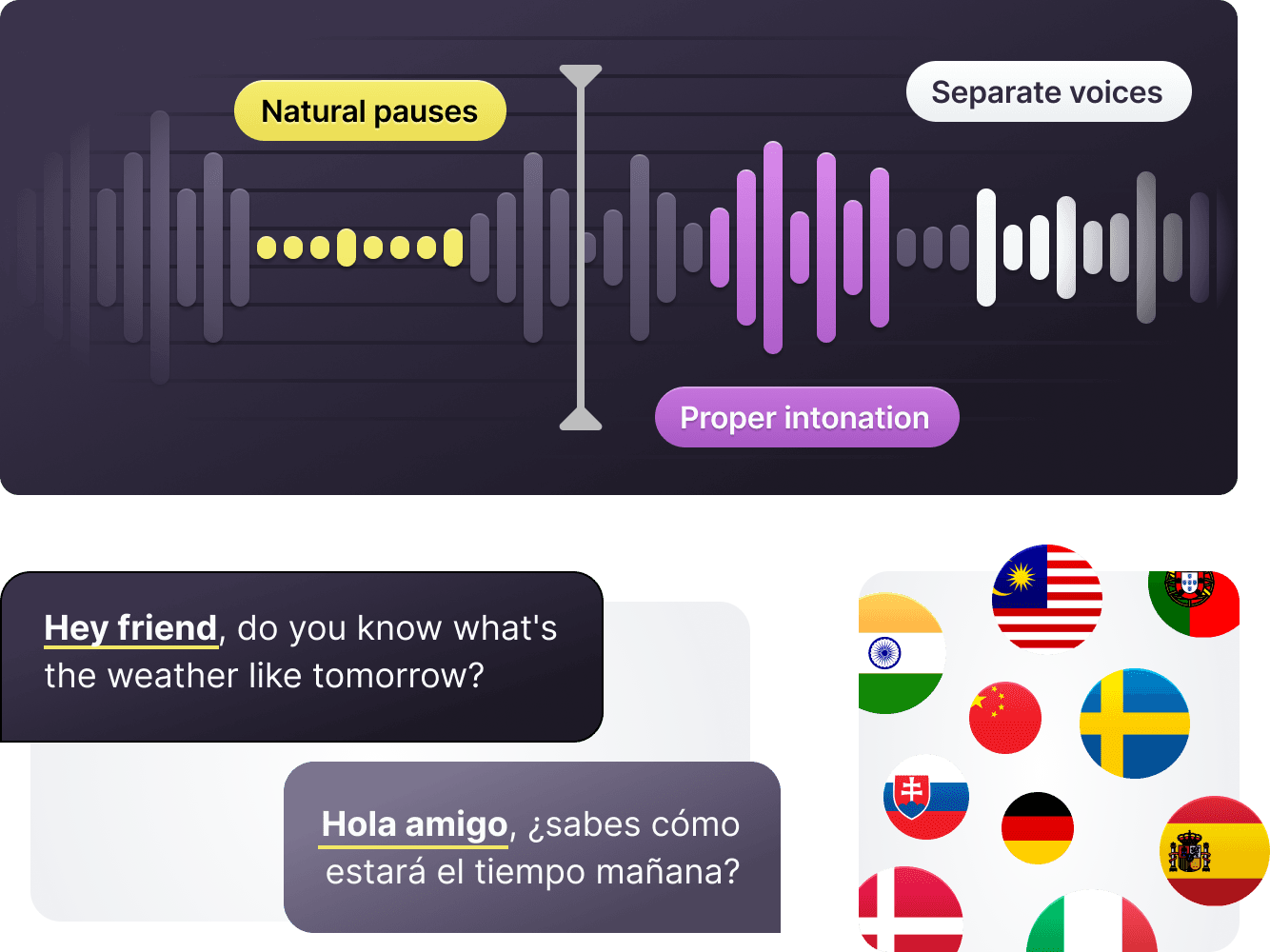
Rich Greek Linguistic Detail
Contextual awareness, natural pauses, extensive voice range, customizable accents, tone and emotional control, greek ai voice applications, storytelling and audiobooks, marketing and branding, educational content, voice assistants and ivr, hear from our text to speech users.

The voices are really amazing and very natural sounding. Even the voices for other languages are impressive. This allows us to do things with our educational content that would not have been possible in the past.
It's amazing to see that text to speech became that good. Write your text, select a voice and receive stunning and near-perfect results! Regenerating results will also give you different results (depending on the settings). The service supports 30+ languages, including Dutch (which is very rare). ElevenLabs has proved that it isn't impossible to have near-perfect text-to-speech 'Dutch'...
We use the tool daily for our content creation. Cloning our voices was incredibly simple. It's an easy-to-navigate platform that delivers exceptionally high quality. Voice cloning is just a matter of uploading an audio file, and you're ready to use the voice. We also build apps where we utilize the API from ElevenLabs; the API is very simple for developers to use. So, if you need a...
As an author I have written numerous books but have been limited by my inability to write them in other languages period now that I have found 11 labs, it has allowed me to create my own voice so that when writing them in different languages it's not someone else's voice but my own. That's certainly lends a level of authenticity that no other narrator can provide me.
ElevenLabs came to my notice from some Youtube videos that complained how this app was used to clone the US presidents voice. Apparently the app did its job very well. And that is the best thing about ElevenLabs. It does its job well. Converting text to speech is done very accurately. If you choose one of the 100s of voices available in the app, the quality of the output is superior to all...
Absolutely loving ElevenLabs for their spot-on voice generations! 🎉 Their pronunciation of Bahasa Indonesia is just fantastic - so natural and precise. It's been a game-changer for making tech and communication feel more authentic and easy. Big thumbs up! 👍
I have found ElevenLabs extremely useful in helping me create an audio book utilizing a clone of my own voice. The clone was super easy to create using audio clips from a previous audio book I recorded. And, I feel as though my cloned voice is pretty similar to my own. Using ElevenLabs has been a lot easier than sitting in front of a boom mic for hours on end. Bravo for a great AI product!
The variety of voices and the realness that expresses everything that is asked of it
I like that ElevenLabs uses cutting-edge AI and deep learning to create incredibly natural-sounding speech synthesis and text-to-speech. The voices generated are lifelike and emotive.
Greek AI Voice Generator
Engaging and relatable, versatile applications, high-quality audio, easy to use, cost-effective, consistency, frequently asked questions, what sets elevenlabs' greek text to speech (tts) apart from conventional tts services.
Eleven Multilingual offers more than a basic text-to-speech service. It uses advanced AI and deep learning to create clear, emotionally engaging speech. It doesn't just translate words; it also captures the subtle aspects of language, like local accents and cultural context, making your content more relatable to a wide range of audiences.
Can I clone my voice to speak in multiple languages?
Yes! Our Professional Voice Cloning technology seamlessly integrates with Eleven Multilingual. Once you've created a digital replica of your voice, that voice can articulate content in all languages supported by our model. The beauty of this integration is that your voice retains its unique characteristics and accent, effectively letting you 'speak' languages you might not know, all while sounding just like you.
Can the Greek handle different regional accents?
Yes, our TTS technology can adapt to various regional Greek accents, providing flexibility for your content.
How much does it cost to use ElevenLabs' Greek text to speech?
Our pricing is based on the number of characters you generate. You can generate 10,000 characters for free every month. Find out more in our pricing page.
What is Greek text to speech?
Text to speech (TTS) is a technology that converts text into spoken audio. It's used to create voiceovers for a variety of content, including videos, audiobooks, and podcasts.
What is the best Greek text to speech online?
ElevenLabs offers the best Greek text to speech (TTS) online. Our AI-powered technology ensures clear, high-quality audio that's engaging and relatable. We are rated 4.8/5 on G2 and have millions of happy customers.
Transcribe Greek Audio to Text
Notta speech-to-text software is the best online transcription tool for accurate and fast transcription of Greek audio. You can also translate it into English, Armenian, French, and other languages.

Convert Greek speech to text with high accuracy
Notta offers a seamless experience in transforming speech to text across Greek and more than 50 additional languages, eliminating the need for manual transcription. Our powerful platform allows you to effortlessly transcribe audio into text with a single click. Leverage our Greek speech-to-text feature to convert spoken words into editable text, streamlining communication processes and maximizing efficiency.
How to Transcribe Greek Audio to Text

1. Upload Greek audio
Start by creating a Notta account. When your new dashboard appears, click 'Import Files' on the right side of the dashboard. You will see a dropdown menu where you can change the transcription language to Greek. Drag the audio to the window or click 'Select Documents' and locate your audio file.
2. Review and edit the transcript
Notta will finish the transcription in a few minutes. Click on the transcript to view, edit, and add notes or images on the editor. The translation service is available after the transcription.
3. Export or share the transcript
You can then export the transcript in a variety of formats. These formats include TXT, DOCX, SRT and PDF. You can also easily share them with anyone. Once you click the “Share” option, you can instantly copy the link or share it on social media.
Enhance Greek Audio-to-Text Experience with Notta

Focus on your conversations instead of constantly taking notes
Tired of constantly juggling between participating in conversations and taking notes? Say goodbye to distractions and hello to seamless engagement with Notta - the best online transcription tool. Notta’s audio-to-text capabilities are available in 50+ languages.

Summarize meetings with AI templates to stay organized
Notta uses AI to automatically transcribe and summarize your meetings so you can make decisions faster. With Notta’s pre-defined templates, you can streamline post-meeting processes and ensure that key insights and action items are captured accurately and efficiently.

Easily export & share in multiple ways to boost productivity
Notta offers unparalleled flexibility with various export file formats and sharing methods. Effortlessly export transcripts in various formats such as TXT, PDF, DOCX, or SRT, and share them via email, link, or integrated apps like Notion, Salesforce, and Zapier.
Why Choose Notta
Multi-language.
Quickly and easily transcribe files in various formats, in 58 different languages such as Greek, French, Armenian, English, Spanish and more.
Safeguard Data
Feel secure knowing your data is safe and private when using Notta. With AWS services for encryption and security, you know your data is protected. Protect your data with features like SSL, GDPR, APPI, and CCPA.
High Accuracy
We use advanced machine learning algorithms to detect words and phrases with more accuracy and precision. Experience superior quality results with up to 98.86% accuracy for high-quality audio.
Multiple File Types
Easily transcribe files in multiple audio formats (e.g. WAV, MP3, M4A, AAC, CAF, AIFF, AVI, RMVB, FLV, MP4, MOV, and WMV). You can even directly paste a YouTube link and get a transcription of the full video.
Multi-Terminal Synchronization
Keep all of your audio transcriptions organized and accessible from any device, including Mac, iPhone, iPad, and Android tablets or web browsers such as Chrome, Firefox, Safari, and Edge.
Fast Transcription
Automating the task of manually transcribing audio into text cut down your workload significantly. Notta can transcribe 1 hour of audio recording in just 5 minutes!
Frequently Asked Questions
What file formats can you export your transcript to?
Notta can export transcripts in TXT, DOCX, SRT, XLSX, or PDF.
TXT (Plain Text) is the simplest format and works with nearly every text editor and word processor.
DOCX (Microsoft Word Open XML Document) is a file type developed by Microsoft that is compatible with Microsoft Office applications, such as Word.
SRT (SubRip Subtitle File) is the most popular format for encoding subtitles and other captions.
XLSX (Microsoft Excel Open XML Spreadsheet) is a spreadsheet format compatible with Microsoft Excel applications.
PDF (Portable Document Format) is the most commonly used format for documents since it preserves the formatting and fonts of the original file, allowing for quick and easy sharing without requiring additional software.
Who needs to use Greek transcription services?
Whether you are a student, a teacher, an academic researcher, or an author, if you need to quickly and accurately transcribe audio or video recordings in Greek, then Notta is the perfect solution for you. With Notta's automated transcription service, you can turn your audio and video files into accurate and searchable transcripts with minimal effort and time investment.
Can Google translate audio files?
The short answer is no, Google does not offer an audio-to-text transcription service. However, you can use Notta to transcribe an audio in Greek and many other languages. We also offer translations for Greek audio and video recordings. The process is easy to use; simply upload the audio file to Notta, and it will be transcribed into text automatically.
What is the turnaround time for Greek transcription?
When it comes to the turnaround time for Greek transcription services, Notta can provide the fastest service available. Notta is capable of automatically transcribing a 1-hour file in just 5 minutes. It also offers 98.86% accuracy with its transcription service. You can also get real-time transcription while in a Zoom, Google Meet, or Microsoft Teams meeting.
Is it possible to transcribe a Greek video from YouTube?
Yes! You can directly paste a YouTube link and get a transcription of the full video. When using transcription services for videos from YouTube, you will get a text document with a timecode that matches the video. This makes it easy to go back and find the exact spot in the video the speaker is talking about.
What Our Users Say
Spiros Xenellis
As a professional translator for podcasts and songs, I need to quickly and accurately transcribe audio and video recordings for translation. I recently discovered Notta and I am really impressed with how easy it is to use. I was able to quickly and easily create transcripts in different languages with just a few taps on my phone. The software automatically creates time-coded transcripts that make it easy to sync up the original audio/video with the translation.
More from Notta

How to Write a Great Meeting Summary (with Examples)

How to Set Up Zoom Meetings as the Host

How to Download a YouTube Transcript
You might be interested in.
Transcription
Transcribe Russian Audio to Text
Transcribe Italian Audio to Text
Transcribe Vimeo Video to Text
Academic Transcription Services
Translation
Translate Greek Audio to English
Translate English Audio to Greek
Translate English Audio to Persian
Translate Finnish Audio to English
Unleash the Power of AI Transcription

Chrome Extension
Help Center
vs Otter.ai
vs Fireflies.ai
vs Happy Scribe
vs Sonix.ai
Integrations
Microsoft Teams
Google Meet
Google Drive
Audio to Text Converter
Video to Text Converter
Online Video Converter
Online Audio Converter
Online Vocal Remover
YouTube Video Summarizer
Along with Stanford news and stories, show me:
- Student information
- Faculty/Staff information
We want to provide announcements, events, leadership messages and resources that are relevant to you. Your selection is stored in a browser cookie which you can remove at any time using “Clear all personalization” below.
- A fall quarter course uses Ancient Athens as a case study to explore practical and philosophical questions about how democracy functions.
- For ancient Athenians, political participation was intertwined with leading an ethical life; being part of a well-run society was seen as essential to human flourishing.
- At the heart of the decision-making process was the “demos” – the Greek word for people – and the “kratos” – the Greek word for rule.
- Knowing they would be called upon to deal with difficult issues had a profound effect on the way Athenian citizens related with the world around them.
With over 4 billion citizens in some 65 countries participating in an election in 2024, the year is being heralded as a historic period – and test – for democracy . In a winter quarter course at Stanford, students examined another important time for self-government: the fifth century BCE, when democracy first emerged.
Each week, Stanford political scientist and classicist Josiah Ober conjured what political life was like in the Greek city-state of Athens to the mix of undergraduate, graduate, and postdoctoral students taking POLISCI 231A: Democracy Ancient and Modern: From Politics to Political Theory . Ober drew on texts by contemporary Greek historians and political theorists who focus on ancient democracy to explore with students some of the issues ancient Athenians grappled with as they put self-government into practice.
For Ober, who has studied ancient and modern political thought for over four decades, ancient Athens makes for an interesting case study for students and scholars to examine how democracy functions and the different forms this mode of government can take.

In a winter quarter course, political scientist and classicist Josiah Ober teaches students about the foundations of democracy. | Andrew Brodhead
“It gives you these possibilities of the different ways democracy could be done,” said Ober, the Markos & Eleni Kounalakis Chair in Honor of Constantine Mitsotakis in the School of Humanities and Sciences . “History gives you some advantages to test a political theory and find out if it could possibly work.”
Other ways to do democracy
In running their democracy, ancient Athenians did many things differently that students considered closely throughout the course.
For one, the political life of its citizens was incredibly active.
Unlike the American system of representative democracy, where citizens vote for elected officials to represent their concerns in government, rule in Ancient Greece was direct: Participation was not a choice but a civic duty.
For ancient Athenians, being political was intertwined with leading an ethical life: Being part of a well-run society was seen as essential to human flourishing.
As Ober explained, by the time an Athenian citizen was 30 years old, it was highly likely they had already participated in the Assembly – the governing body where 5,000 or 6,000 citizens regularly met to vote on important issues of the day – or even served on the Council, a group of 500 citizens randomly chosen by lottery to serve 10-month terms to help set the Assembly’s agenda (ancient Athenians frequently drew on lotteries to distribute civic responsibilities among its citizens; in the U.S., they are scarcely used – the only thing close is jury duty).
For Athenian citizens, knowing they would be called upon to deal with difficult issues and decisions – like whether to go to war – had a profound effect on the way they related with the world around them.
“The way in which Athenians conducted their lives was highly influenced by the fact that they were going to have some real responsibility for their community,” Ober said. “When an Athenian went to the Assembly and voted for war, he was sending himself to war.”
Democracy isn’t something that is inherent or is going to be given to you. It’s something that you need to work at.” Cameron Adams, ’24 Senior majoring in political science
At the heart of the Assembly’s decision-making process was the “demos” – the Greek word for people – and the “kratos” – the Greek word for rule (the etymological root of democracy comes from these two words).
In a class seminar devoted to deliberation, Ober described how the citizen Assembly made decisions and how those decisions represented the will of the demos, the collective judgment of the people about the best available course of action. The class then discussed some of the tensions that arise when conceptualizing a large, diverse population as a monolithic entity.
They also debated questions about accountability. If the decisions made by the Assembly were that of the demos, did that mean that individuals were no longer responsible for the decisions they contributed to making? Which raised another question: What does a democracy look like when officials are accountable to the people, but “the people” are accountable to no one?
Tackling complex questions like these – which are political, philosophical, and practical in nature – formed the basis of many of the students’ discussions.
For Michael Thomas, a second-year PhD student who took the course, examining how the ancient Greeks approached civic engagement and education has made him think about what could happen if American society did something similar.

Michael Thomas is a second-year PhD student in the Department of Political Science. | Andrew Brodhead
“We ask ourselves a lot about how to do democratic education and a great deal of it for the Greeks was by doing, such as governing through the Assembly and holding office,” Thomas said. “I think people would feel more committed to democracy if they experienced it in their own lives through participating in collective action.”
Learning from limitations
But not everyone in ancient Athens was able to participate in political life.
Excluded from the franchise were women and slaves – not too dissimilar to the limitations America’s Founding Fathers set when they wrote the Declaration of Independence, Constitution, and the Bill of Rights in the late 18th century.
For political science major Cameron Adams, ’24, learning how Athenians restricted democratic participation has helped them better understand barriers in American democracy.
“We modeled our democracy after Athenian democracy, which was flawed, so it makes sense that our system is flawed,” said Adams, who took two of the courses Ober taught in winter quarter.
I think people would feel more committed to democracy if they experienced it in their own lives through participating in collective action.” Michael Thomas Second-year PhD student in the Department of Political Science
Even with a series of reforms in the 20th century that expanded and protected U.S. voting rights to include women and people of color, there are still groups of Americans today who are ineligible to participate in an election. For example, people with a criminal conviction may be blocked from voting in their state. People have also become disenfranchised by being forced to face long wait times at polling stations or not being provided enough places to vote .
While learning how ancient Athenians grappled with who was and was not able to participate in democratic life, Adams considered contemporary problems like these. One essay Adams read that they found particularly relevant examined the ways in which women and slaves in ancient Athens found ways to speak out against the injustices they faced.
“It illuminates that democracy isn’t something that is inherent or is going to be given to you,” Adams said. “It’s something that you need to work at.”
Text to Speech Greek
Convert text to speech in a greek accent.
Bring your written content to life with realistic voices with Greek accents straight from your browser. Edit your Greek audio to create compelling content that will keep your viewers engaged and captivated. Don't waste your time recording yourself or hiring a Greek-speaking person, Flixier Greek TTS feature provides cutting-edge technology that produces AI voices identical to human speech. It's the perfect solution for video and audio editors, content creators, and marketing teams.
-webp.webp)
Give voice to your script with our Text to Speech Greek Tool
Our Greek text-to-speech tool features over 100 voices (male, female, child) in multiple languages and accents, enabling you to generate natural-sounding speech based on your script without downloading or installing anything.
Make the listening experience more enjoyable
Dazzle your audience with Greek audio content of studio quality. Use Flixier's audio editor to perfect your recordings by removing background noise, adjusting speaking speed, enhancing clarity, adding music, sound effects, or transitions to create professional- sounding content.
Break through language barriers with AI human like voices
Generate top-quality narrations using Flixier's AI-powered voices that sound just like humans. Automatically translate your content into over 130 languages, including Greek, to expand your reach and enhance its accessibility.
Create text-to-speech video for YouTube in Greek
Add Greek narrations to your YouTube videos, ensuring your audience fully understands your message. Use Flixier to automatically generate text-to-speech voice overs in Greek and over 130 other languages without recording your own voice.
How to generate text to speech in Greek:
Click on the Get Started button above to open Flixier in your browser and select " Text to Speech " from the Import menu.
Type or paste the text you want to convert and choose the language you want to generate your voiceovers from the drop-down menu, such as Greek or any other language. To preview each voice, click on the Listen Preview button. Once you have found a voice that best suits your content, click the Add to Media button. Flixier will automatically add your new Greek audio file to your library, which you can use in your videos.
Once you are satisfied with the Greek voiceovers, you can effortlessly download them in MP3 format directly on your device. You can also store them on other cloud storage services or share them with your audience on social media platforms such as YouTube, TikTok, or Instagram.

What people say about Flixier

I'm so relieved I found Flixier. I have a YouTube channel with over 700k subscribers and Flixier allows me to collaborate seamlessly with my team, they can work from any device at any time plus, renders are cloud powered and super super fast on any computer.

My main criteria for an editor was that the interface is familiar and most importantly that the renders were in the cloud and super fast. Flixier more than delivered in both. I've now been using it daily to edit Facebook videos for my 1M follower page.

I’ve been looking for a solution like Flixier for years. Now that my virtual team and I can edit projects together on the cloud with Flixier, it tripled my company’s video output! Super easy to use and unbelievably quick exports.
Frequently asked questions.
You can try our text-to-speech feature for free and decide if it's the right fit for your editing needs before upgrading to a Pro or Business plan. All you need to do is head over to Flixier, paste or type your text, choose a voice and language from the drop-down menu, and then click Listen Preview to hear how it will sound in Greek, Japanese, or any other language you prefer.
Other text-to-speech tools have robotic, unnatural AI voices that can be a real turn-off, making it hard to understand the message. But with Flixier, you don't have to worry about that anymore!
Flixier has an advanced text-to-speech feature that lets you choose from over 100 lifelike voices that sound natural and clear. You can even fine-tune the audio to your liking, ensuring that the volume and rate are just right. You can also create content in over 130 languages, which means that you can reach global audiences without spending hours recording or editing your content.
With Flixier's amazing text-to-speech technology, you can create content much faster and reach a wider audience without spending money on expensive equipment, studio recordings, or hiring professional narrators? Take your content creation game to the next level!
Need more than text to speech Greek generator?
Edit easily, publish in minutes, collaborate in real-time, other text to speech tools, articles, tools and tips, unlock the potential of your pc.

Guide Center
North Macedonian president's inauguration revives name dispute with Greece
- Medium Text

Sign up here.
Reporting by Angeliki Koutantou in Athens and Aleksandar Vasovic in Belgrade; Writing by Renee Maltezou; Editing by Andrew Heavens and Christina Fincher
Our Standards: The Thomson Reuters Trust Principles. New Tab , opens new tab
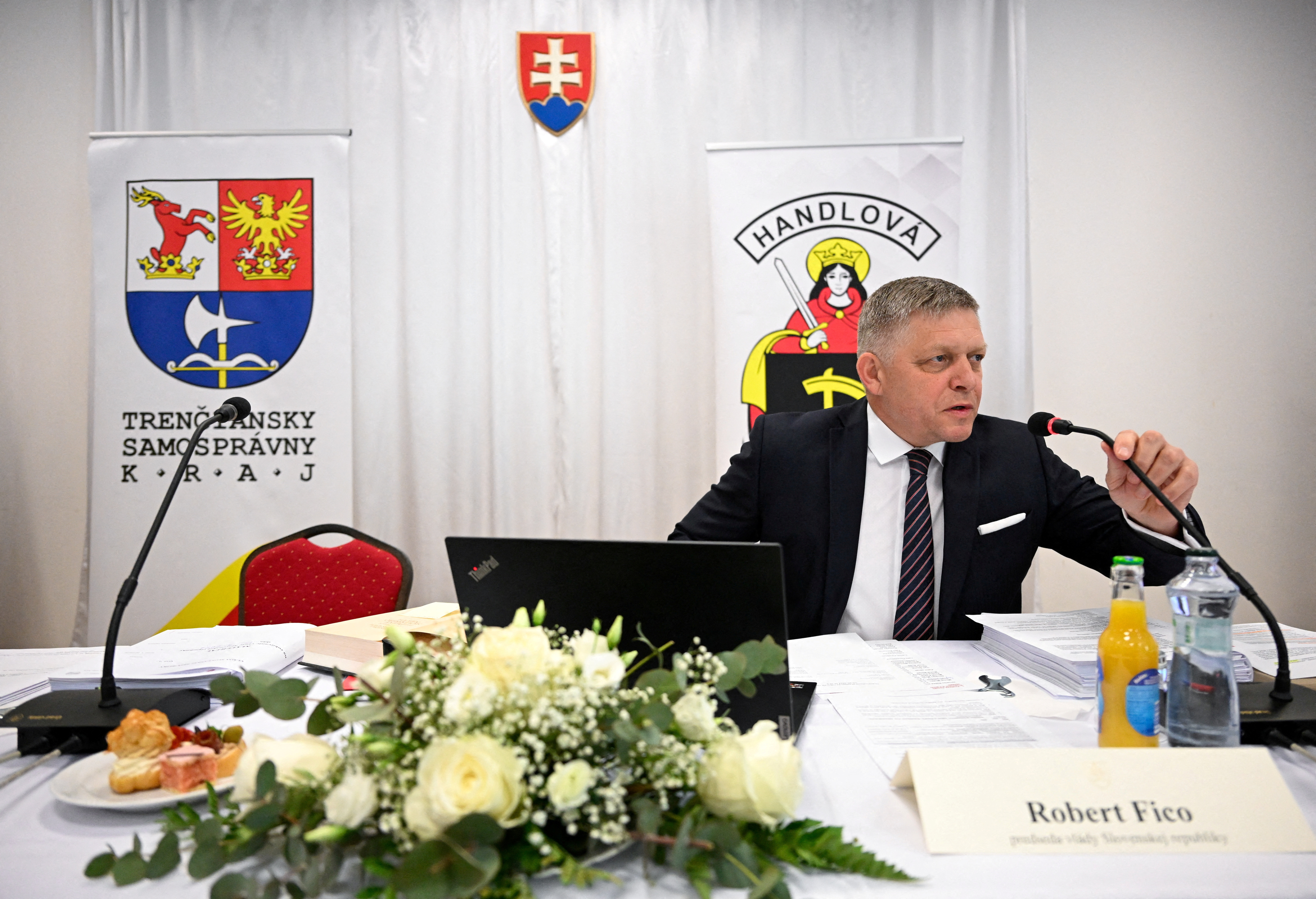
Britain will spend more than 10 billion pounds ($12.70 billion) compensating thousands of people who were treated with blood contaminated with HIV or hepatitis C in the 1970s and 1980s, the Sunday Times reported.

World Chevron
Two dead, five missing after suspected boat collision on danube in hungary.
Two people were killed and five others were missing after a suspected collision involving a small motor boat and a cruise ship on the Danube River north of Budapest late on Saturday, Hungarian police said.
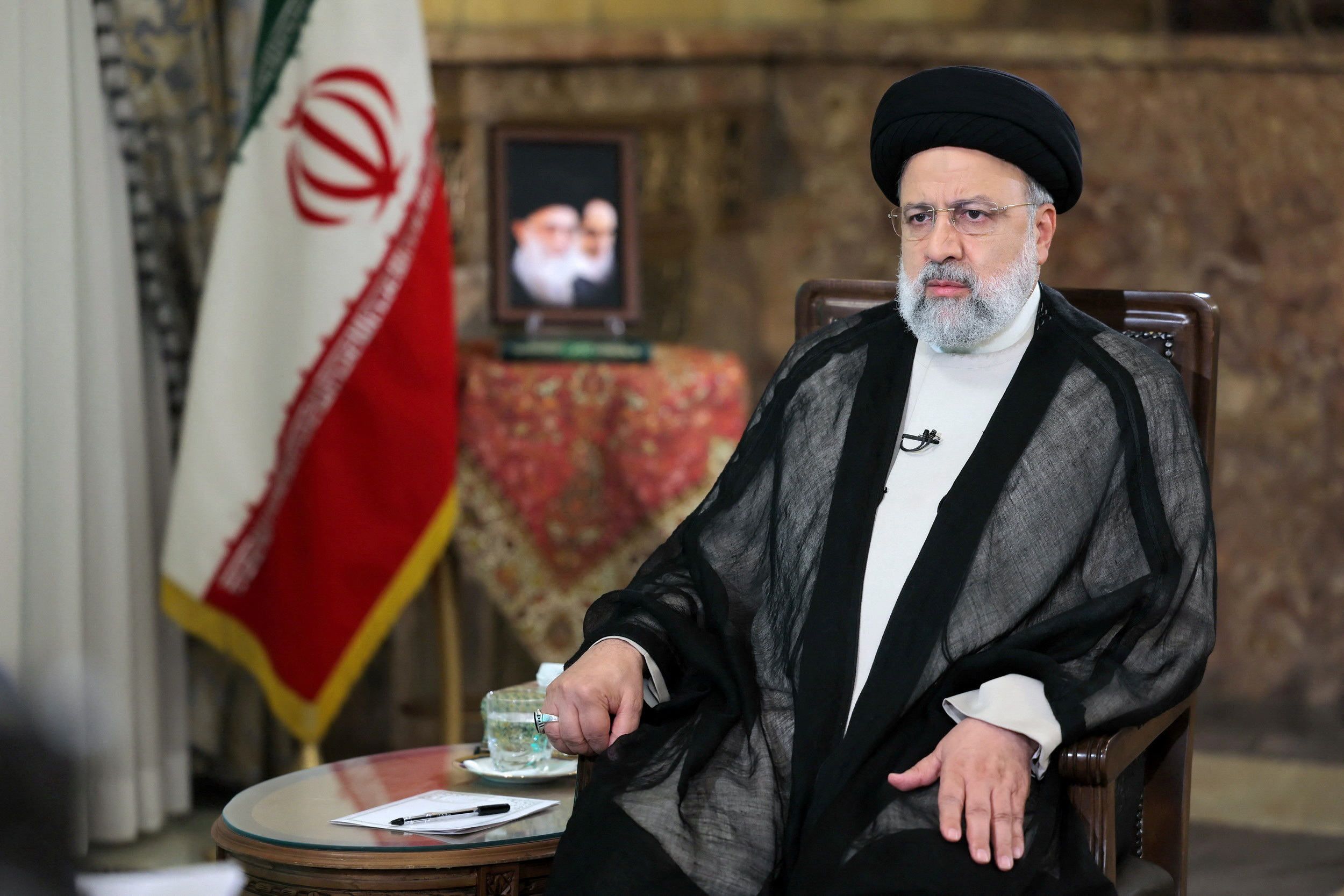
Acts 17:16-34 New International Version
16 While Paul was waiting for them in Athens, he was greatly distressed to see that the city was full of idols. 17 So he reasoned in the synagogue ( A ) with both Jews and God-fearing Greeks, as well as in the marketplace day by day with those who happened to be there. 18 A group of Epicurean and Stoic philosophers began to debate with him. Some of them asked, “What is this babbler trying to say?” Others remarked, “He seems to be advocating foreign gods.” They said this because Paul was preaching the good news ( B ) about Jesus and the resurrection. ( C ) 19 Then they took him and brought him to a meeting of the Areopagus, ( D ) where they said to him, “May we know what this new teaching ( E ) is that you are presenting? 20 You are bringing some strange ideas to our ears, and we would like to know what they mean.” 21 (All the Athenians ( F ) and the foreigners who lived there spent their time doing nothing but talking about and listening to the latest ideas.)
22 Paul then stood up in the meeting of the Areopagus ( G ) and said: “People of Athens! I see that in every way you are very religious. ( H ) 23 For as I walked around and looked carefully at your objects of worship, I even found an altar with this inscription: to an unknown god . So you are ignorant of the very thing you worship ( I ) —and this is what I am going to proclaim to you.
24 “The God who made the world and everything in it ( J ) is the Lord of heaven and earth ( K ) and does not live in temples built by human hands. ( L ) 25 And he is not served by human hands, as if he needed anything. Rather, he himself gives everyone life and breath and everything else. ( M ) 26 From one man he made all the nations, that they should inhabit the whole earth; and he marked out their appointed times in history and the boundaries of their lands. ( N ) 27 God did this so that they would seek him and perhaps reach out for him and find him, though he is not far from any one of us. ( O ) 28 ‘For in him we live and move and have our being.’ [ a ] ( P ) As some of your own poets have said, ‘We are his offspring.’ [ b ]
29 “Therefore since we are God’s offspring, we should not think that the divine being is like gold or silver or stone—an image made by human design and skill. ( Q ) 30 In the past God overlooked ( R ) such ignorance, ( S ) but now he commands all people everywhere to repent. ( T ) 31 For he has set a day when he will judge ( U ) the world with justice ( V ) by the man he has appointed. ( W ) He has given proof of this to everyone by raising him from the dead.” ( X )
32 When they heard about the resurrection of the dead, ( Y ) some of them sneered, but others said, “We want to hear you again on this subject.” 33 At that, Paul left the Council. 34 Some of the people became followers of Paul and believed. Among them was Dionysius, a member of the Areopagus, ( Z ) also a woman named Damaris, and a number of others.
- Acts 17:28 From the Cretan philosopher Epimenides
- Acts 17:28 From the Cilician Stoic philosopher Aratus
Cross references
- Acts 17:17 : S Ac 9:20
- Acts 17:18 : S Ac 13:32
- Acts 17:18 : ver 31, 32; Ac 4:2
- Acts 17:19 : ver 22
- Acts 17:19 : Mk 1:27
- Acts 17:21 : S ver 15
- Acts 17:22 : ver 19
- Acts 17:22 : ver 16
- Acts 17:23 : Jn 4:22
- Acts 17:24 : Isa 42:5; Ac 14:15
- Acts 17:24 : Dt 10:14; Isa 66:1, 2; Mt 11:25
- Acts 17:24 : 1Ki 8:27; Ac 7:48
- Acts 17:25 : Ps 50:10-12; Isa 42:5
- Acts 17:26 : Dt 32:8; Job 12:23
- Acts 17:27 : Dt 4:7; Isa 55:6; Jer 23:23, 24
- Acts 17:28 : Dt 30:20; Job 12:10; Da 5:23
- Acts 17:29 : Isa 40:18-20; Ro 1:23
- Acts 17:30 : Ac 14:16; Ro 3:25
- Acts 17:30 : ver 23; 1Pe 1:14
- Acts 17:30 : Lk 24:47; Tit 2:11, 12
- Acts 17:31 : S Mt 10:15
- Acts 17:31 : Ps 9:8; 96:13; 98:9
- Acts 17:31 : S Ac 10:42
- Acts 17:31 : S Ac 2:24
- Acts 17:32 : ver 18, 31
- Acts 17:34 : ver 19, 22
Holy Bible, New International Version®, NIV® Copyright ©1973, 1978, 1984, 2011 by Biblica, Inc.® Used by permission. All rights reserved worldwide.
NIV Reverse Interlinear Bible: English to Hebrew and English to Greek. Copyright © 2019 by Zondervan.

More on the NIV
- Unleash God's Word!
Bible Gateway Recommends


IMAGES
VIDEO
COMMENTS
Rhetoric, as defined by Aristotle, is the "faculty of discovering in the particular case all the available means of persuasion.". [1] For the Greeks, rhetoric, or the art of public speaking, was first and foremost a means to persuade. Greek society relied on oral expression, which also included the ability to inform and give speeches of ...
Written by Greek Boston in Learn How to Speak Basic Greek Comments Off on Overview of the Parts of Speech in the Greek Language. When it comes to learning the Greek language, there are a lot of things that should be studied. Sure, you can always learn enough words and phrases to get you through the basics in Greek. This is especially useful if you will be traveling to Greece.
speech n. (declaration, address) ομιλία ουσ θηλ. λόγος ουσ αρσ. The vice president's speech was politely applauded. Η ομιλία του αντιπρόεδρου έγινε δεκτή με ένα ευγενικό χειροκρότημα. ⓘ. Αυτή η πρόταση δεν είναι μετάφραση της ...
Pericles' Funeral Oration is regarded as one of the greatest speech sof all time. Public Domain. In 431 BCE, the Athenian statesman Pericles delivered one of the most influential speeches of all time, "Pericles' Epitaphios," otherwise known as "Pericles' Funeral Oration.". The speech, recorded by the historian Thucydides who was ...
Greek text to speech online voices make it easy to create audio guides, videos and language lessons in Greek. Turn a Word document to MP3 using Greek text to speech and download it instantly, or convert a Powerpoint presentation to a Greek voice video in minutes.
Parrhesia. In rhetoric, parrhesia ( Greek: παρρησία) is candid speech, speaking freely. [1] It implies not only freedom of speech, but the obligation to speak the truth for the common good, even at personal risk.
12.3 Connectives. 12.4 Interjectives. Part I: Parts-of-speech and morphosyntax 1. Verbal inflectional categories 1.1 Valance & Valency alternating morphology 1.1.1 Transitivity and embodiment 1.1.2 Prototypical transitive events 1.1.3 Event energy source 1.1.4 Event energy direction 1.1.5 Notes on activa tantum and media tantum verbs 1.2 Aspect ...
Greek has been spoken in the Balkan peninsula since around the 3rd millennium BC, or possibly earlier. The earliest written evidence is a Linear B clay tablet found in Messenia that dates to between 1450 and 1350 BC, making Greek the world's oldest recorded living language. Among the Indo-European languages, its date of earliest written attestation is matched only by the now-extinct Anatolian ...
The ancient Greeks were pioneers of free speech. Their theater, literature, and educational institutions explored the human experience, freedom of expression, and questioning of authority. Like contemporary societies, however, ancient Greece did not allow complete freedom of speech.
How to say "Speech" in Greek and in 45 More languages. Hungarian beszéd. Korean 연설. Castilian Spanish el discurso. Japanese スピーチ. French le discours. Mandarin Chinese 演讲. Italian il discorso. German die Rede.
Greek words for speech include ομιλία, λόγος, φωνή, λαλιά and αγόρευση. Find more Greek words at wordhippo.com!
James Kierstead. As the Oxford political theorist Teresa Bejan reminded us a few years ago now in The Atlantic, the Greeks had two concepts of free speech.The first, isēgoriā (ἰσηγορία) could more literally be translated 'equality of public speech', whereas the second, parrhēsiā (παρρησία), is more directly focussed on the license to say whatever you want: the prefix ...
The Two Clashing Meanings of 'Free Speech'. Today's campus controversies reflect a battle between two distinct conceptions of the term—what the Greeks called isegoria and parrhesia. Socrates ...
Greek remains a language which greatly enriches international scientific discourse; more than any other, it is the language which developed, shaped and expressed the beginning of most scientific theories, philosophical thoughts, and literature in most of the modern-day languages of the Western world.. Zolotas' English-Greek speech delivered on Oct. 2, 1959
Direct and indirect speech (Ευθύς και πλάγιος λόγος) Direct discourse refers to the exact words that someone says or writes, such as statements, questions, commands, or prohibitions. Indirect discourse, on the other hand, means that the original statement is reported indirectly, often with a change in tense or form of pronoun.
Thayer's Greek Lexicon. STRONGS NT 2980: λαλέω. λαλέω, λαλῶ; imperfect 3 person singular ἐλάλει, plural ἐλάλουν; future λαλήσω; 1 aorist ἐλάλησα; perfect λελάληκα; passive, present λαλοῦμαι; perfect λελάλημαι; 1 aorist ἐλαλήθην; 1 future λαληθήσομαι: (from ...
Translation of "speech" into Greek. λόγος, ομιλία, αγόρευση are the top translations of "speech" into Greek. Sample translated sentence: Speech is silver, silence is golden. ↔ Τα λίγα λόγια ζάχαρη και τα καθόλου μέλι. (uncountable) The faculty of speech; the ability to speak or to use ...
In Greek there are 10 parts of speech. Some of them we can conjugate: article. άρθρο. a grammatical marker of definiteness ( the) or indefiniteness ( a, an) noun. ουσιαστικό. the name of a specific object or set of objects, such as living creatures, places, actions, qualities, states of existence, or ideas. adjective.
Άνω τελεία (raised point) [ edit] · raised point ( Unicode (Greek) U+0387 ), equivalent to semi colon ; Separates groups of clauses in a sentence. Separates two parts of a sentence where a κόμμα is thought to be inadequate. To represent it in html use · — in Wiktionary and elsewhere U+0387 is automatically converted to the ...
Greek small talk is so dependent on these phrases, in fact, that when it's someone's birthday, a whole conversation can be had using such wishes alone. When the government announced its measures for limiting the spread of Covid-19, a new way was quickly chosen for ending zoom calls and brief chance encounters on the street; "kali lefteria ...
Turn Greek text to speech online for free using advanced AI technology. Whether you're targeting native speakers or a global audience, our Greek AI voices are the best quality available. Greek. Get Started Free. 0 / 333. How to Create Greek Text to Speech Bring a unique Mediterranean flair to your content with our Greek text to speech. ...
Live-transcribe speech into text in minutes with Notta Android/iOS app. Chrome Extension. Capture and convert audio and video from the browser with Notta Chrome Extension. Features. Transcription. Convert your speech, either live or recorded, into text in just one click. Translation. Access information or content in different languages. Recording.
One essay Adams read that they found particularly relevant examined the ways in which women and slaves in ancient Athens found ways to speak out against the injustices they faced. "It ...
Generate text to speech in Greek. Type or paste the text you want to convert and choose the language you want to generate your voiceovers from the drop-down menu, such as Greek or any other language. To preview each voice, click on the Listen Preview button. Once you have found a voice that best suits your content, click the Add to Media button ...
Greece threatened to hinder North Macedonia's bid to join the EU on Monday after newly elected president Gordana Siljanovska-Davkova called her country just "Macedonia" during a speech, reviving a ...
Acts 17:16-34. New International Version. In Athens. 16 While Paul was waiting for them in Athens, he was greatly distressed to see that the city was full of idols. 17 So he reasoned in the synagogue with both Jews and God-fearing Greeks, as well as in the marketplace day by day with those who happened to be there. 18 A group of Epicurean and ...
Albanian Prime Minister Edi Rama spoke to the Albanian minority in Greece in an Athens rally ahead of next year's election in the neighboring country. Credit: Finnish Government / CC BY 2.0 / Wikimedia Commons. Albanian Prime Minister Edi Rama spoke highly of Greece and Prime Minister Kyriakos Mitsotakis during his pre-election speech addressed to Albanian residents in Greece on Sunday.